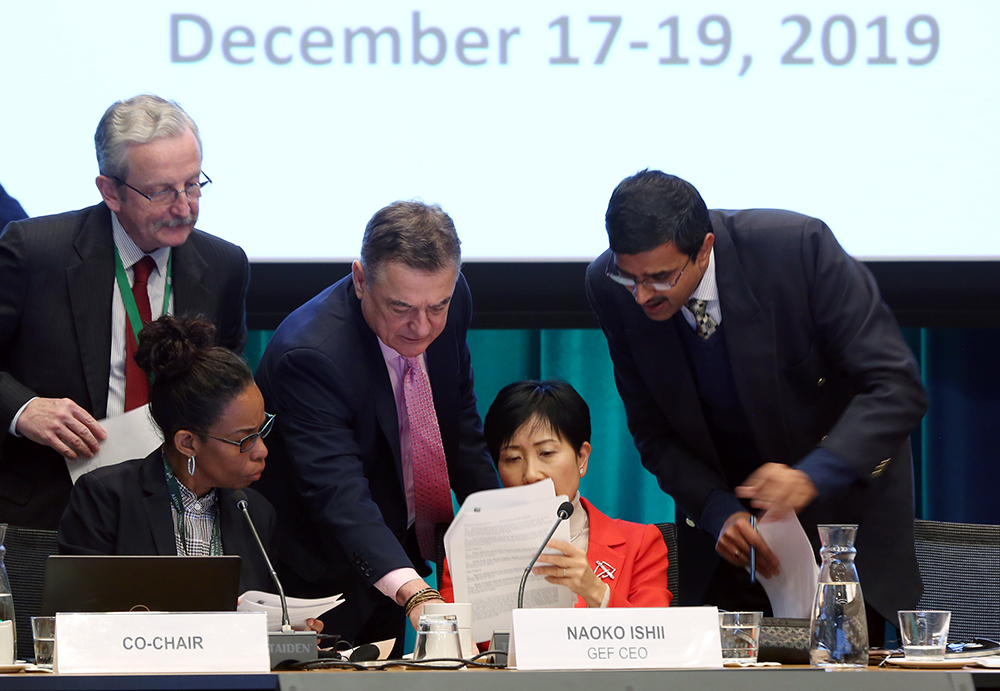On Thursday morning Council Members approved the Memorandum of Understanding between the Conference of the Parties Serving as the Meeting of the Parties to the Kyoto Protocol and the GEF Secretariat regarding services to the Adaptation Fund Board, with minor amendments.
Council Members selected the topics for discussion during the next GEF Council Consultations with civil society: “The Application of Traditional Knowledge by Indigenous Peoples and Local Communities, Stewards of the Global Environment," to be discussed at the 58th meeting of the Council in June 2020, and “Enhancing Climate Resilience and the Role of Civil Society, Local Communities and Indigenous Peoples,” to be discussed at the 59th meeting of the Council in December 2020.
GEF Council Members also convened as the 27th meeting of the Council of the LDCF/SCCF, and adopted an LDCF Work Program comprising nine projects, with resources amounting to USD 59.95 million for the LDCF, including project grants and Agency fees.
During a pledging session for the LDCF, Dirk Wouters, Belgian Ambassador to the US, announced his country’s pledge of EUR 15 million to the Fund for new projects. Council Members from Sweden, Canada, Denmark, the Netherlands and Germany reaffirmed their governments’ pledges made earlier in 2019.
Following approval of the Joint Summary of the Chairs for both the GEF Council and the LDCF/SCCF Council, GEF CEO and Chairperson Naoko Ishii closed the meeting at 11:52 am.
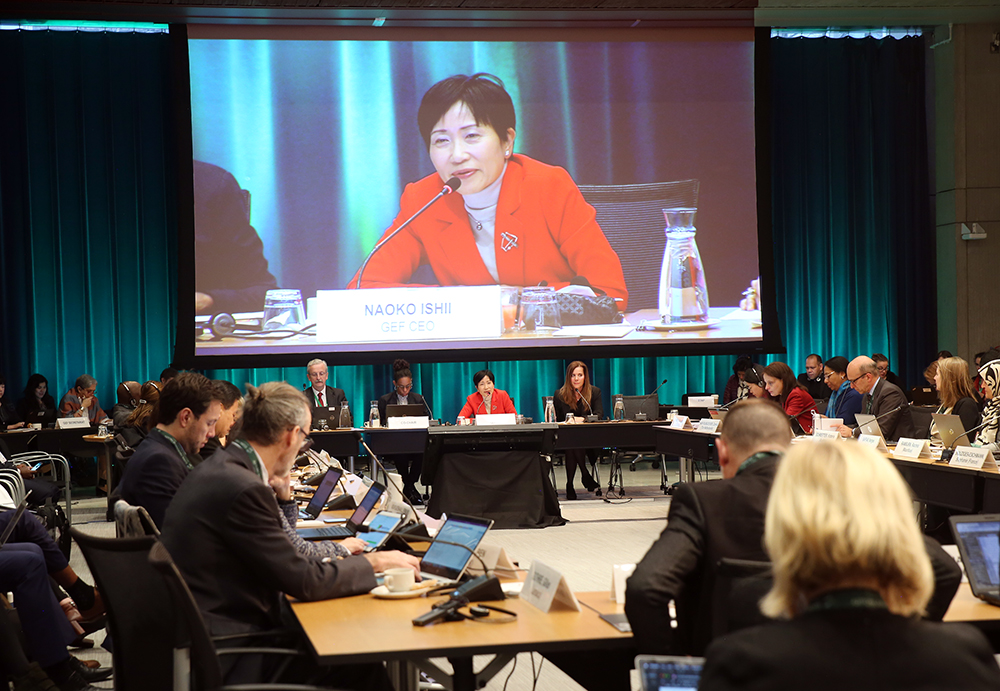
Naoko Ishii, GEF CEO and Chairperson, addresses the Council.
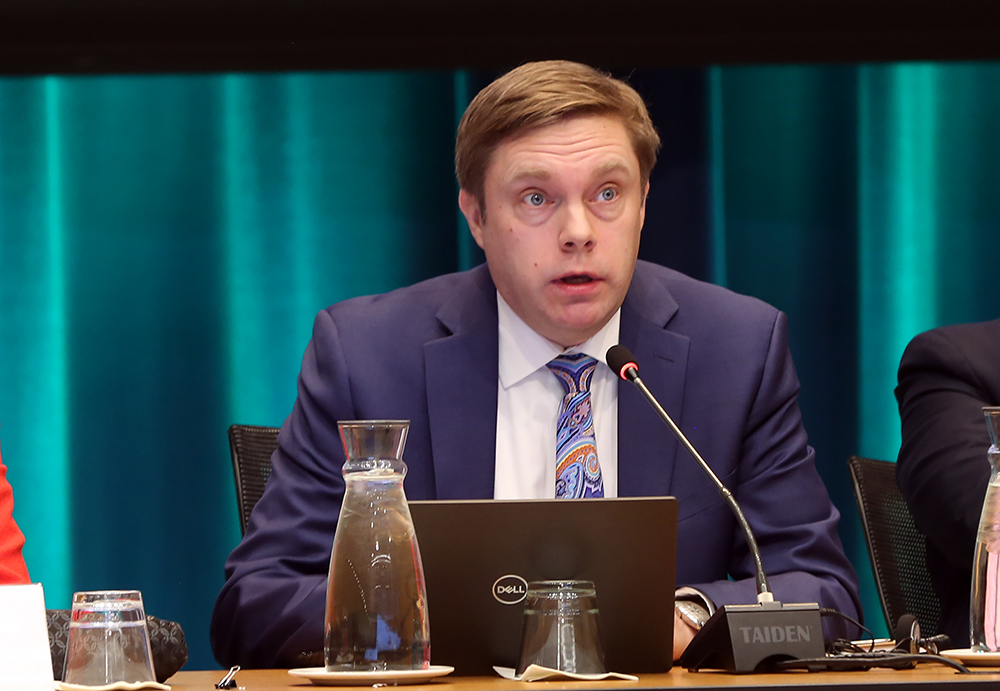
Mikko Ollikainen, Adaptation Fund Secretariat
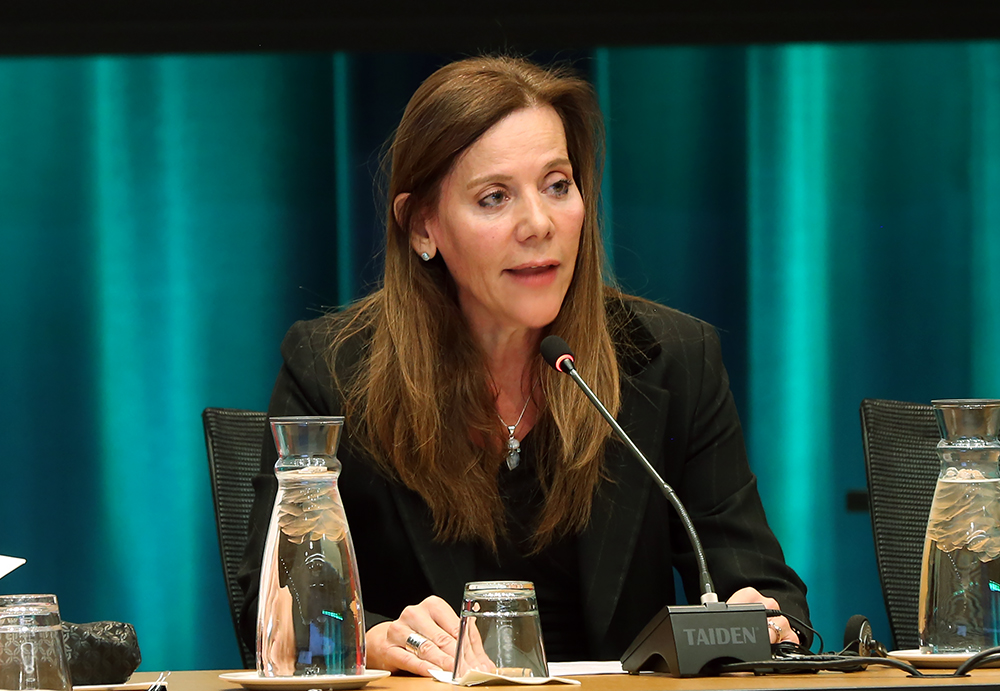
Pilar Barrera Rey, GEF Secretariat
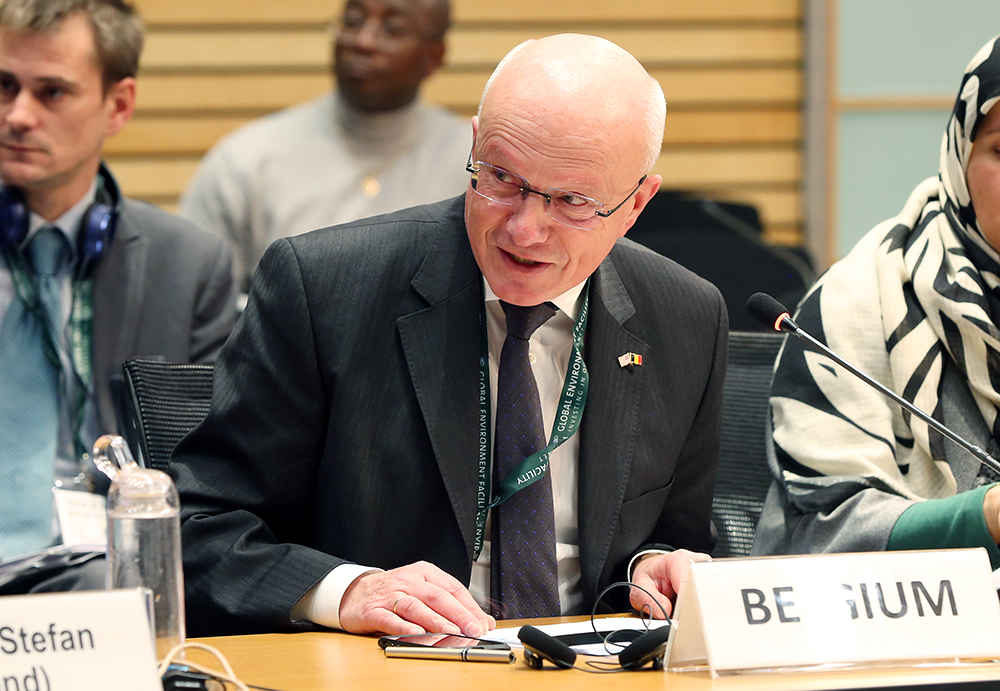
Dirk Wouters, Belgian Ambassador to the US, announces a EUR 15 million pledge to the LDCF.
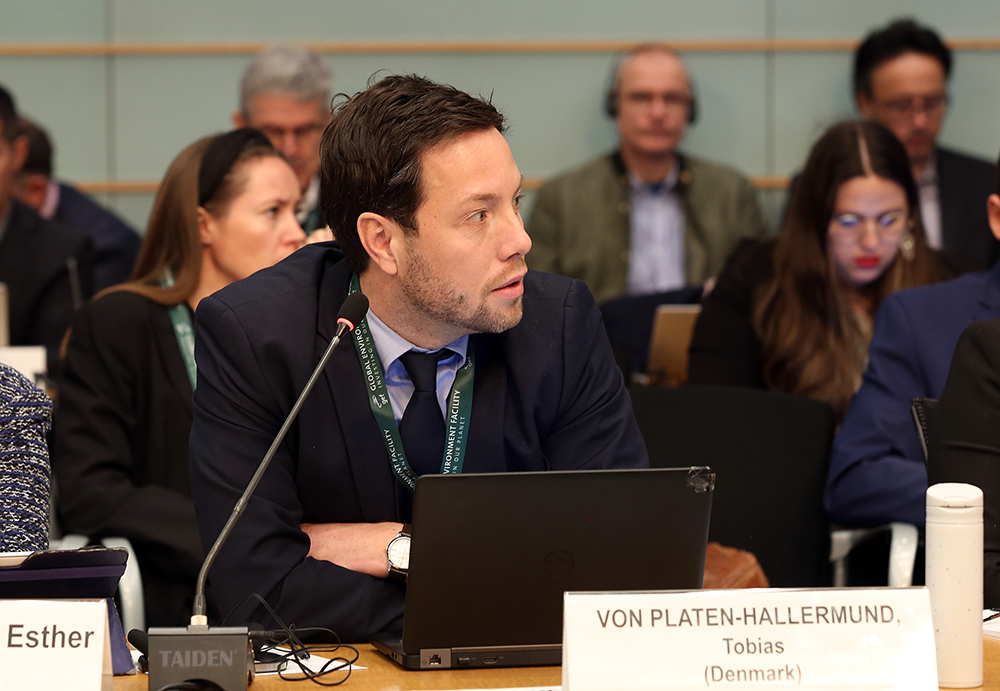
Tobias Von Platten-Hallermund, Alternate Council Member, Denmark
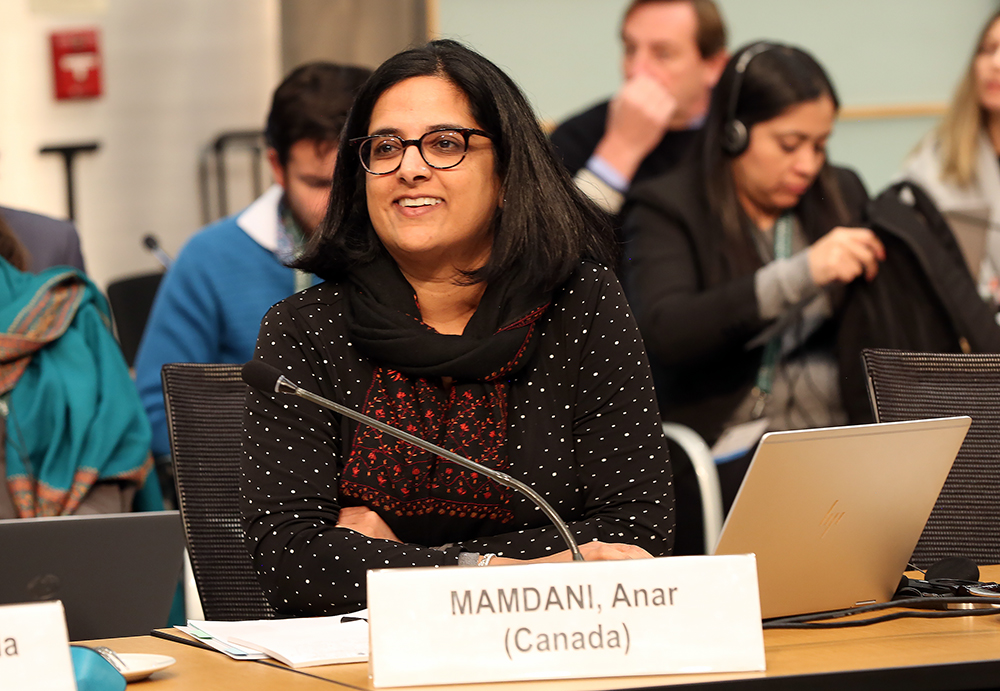
Anar Mamdani, Council Member, Canada
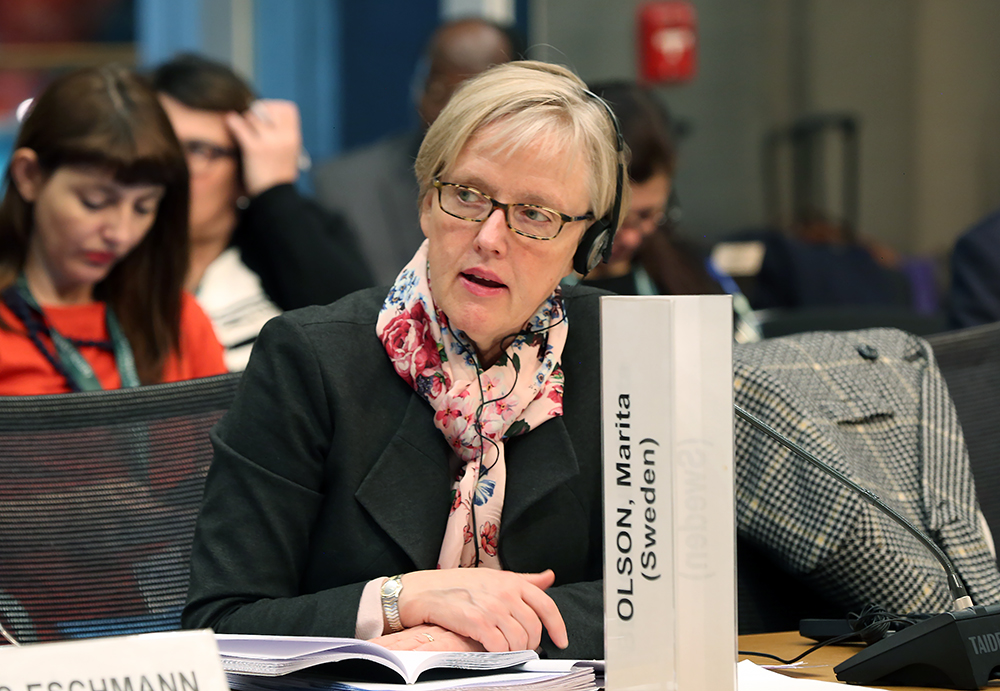
Marita Olson, Council Member, Sweden
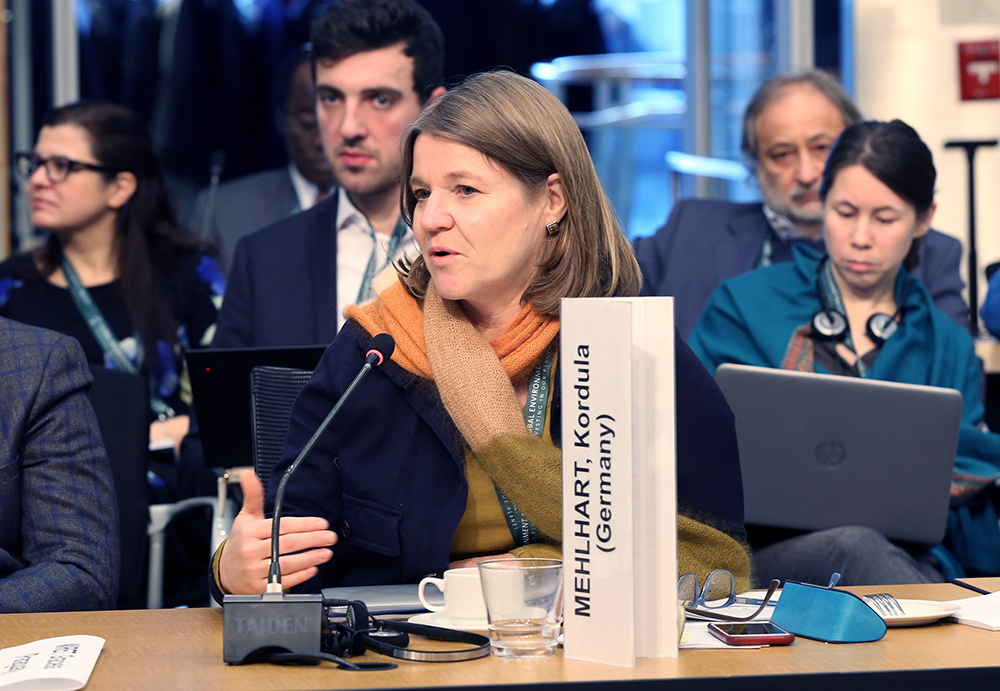
Kordula Mehlhart, Council Member, Germany
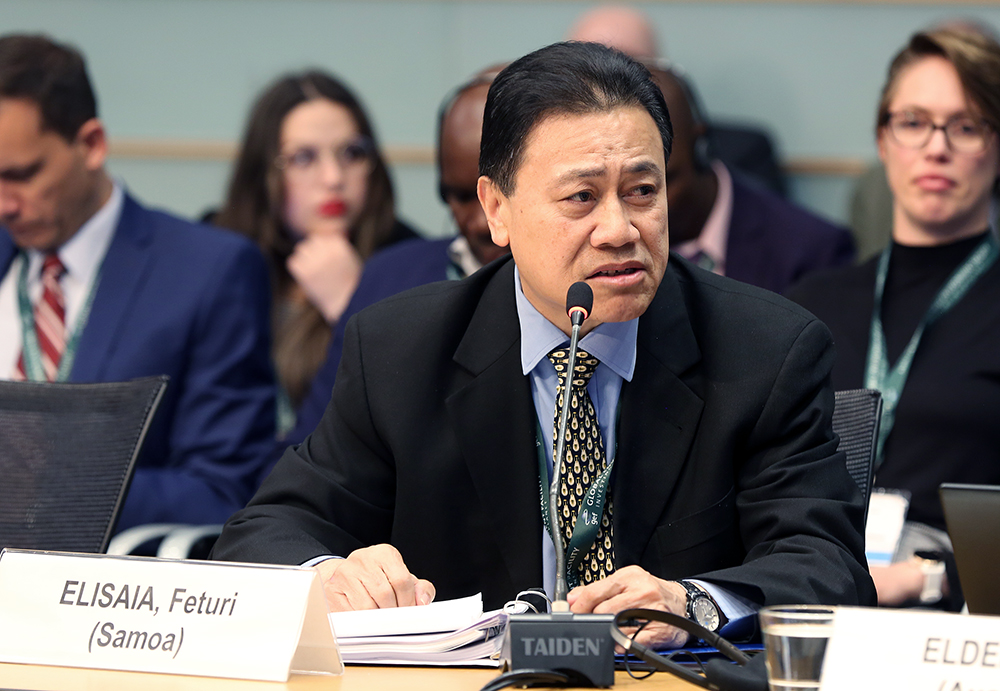
Feturi Elisaia, Samoa
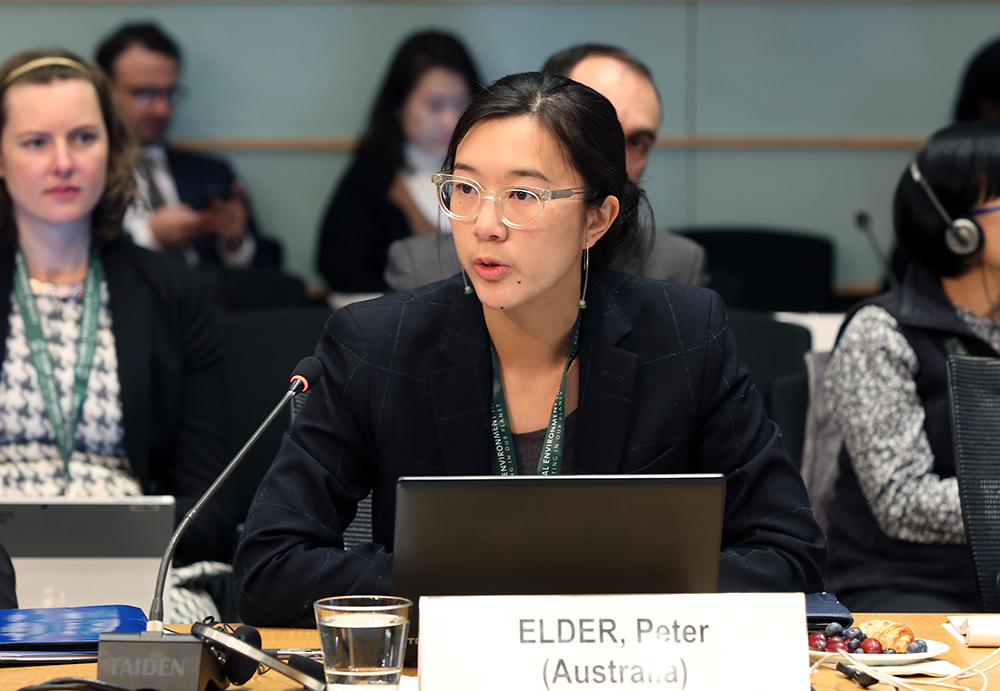
Gabrielle Chin, New Zealand
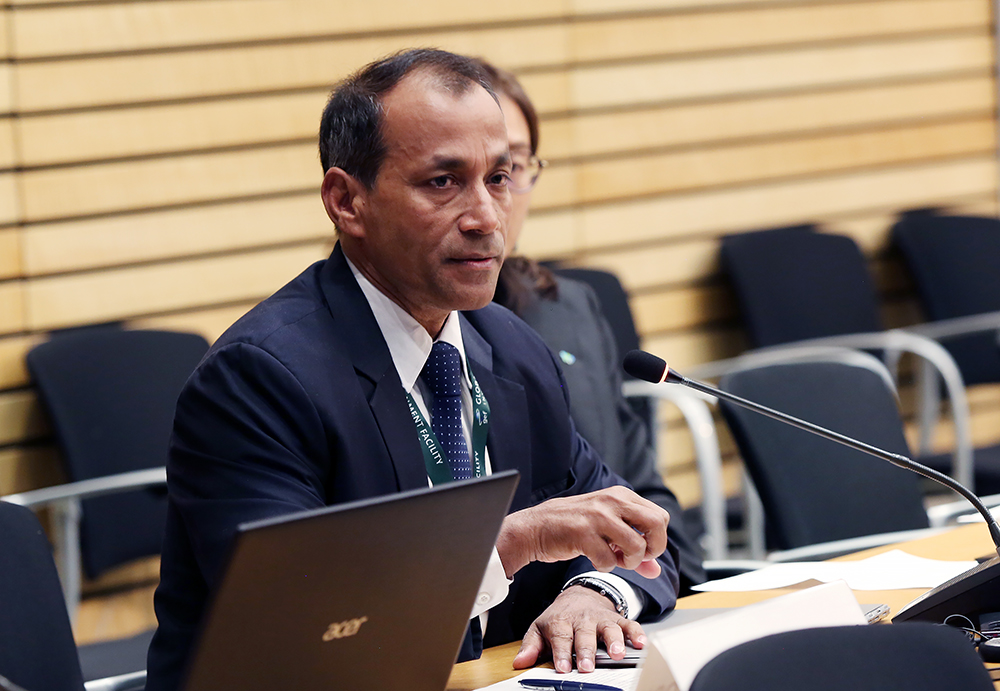
Akhteruzzaman Sano, Chair, GEF-CSO Network
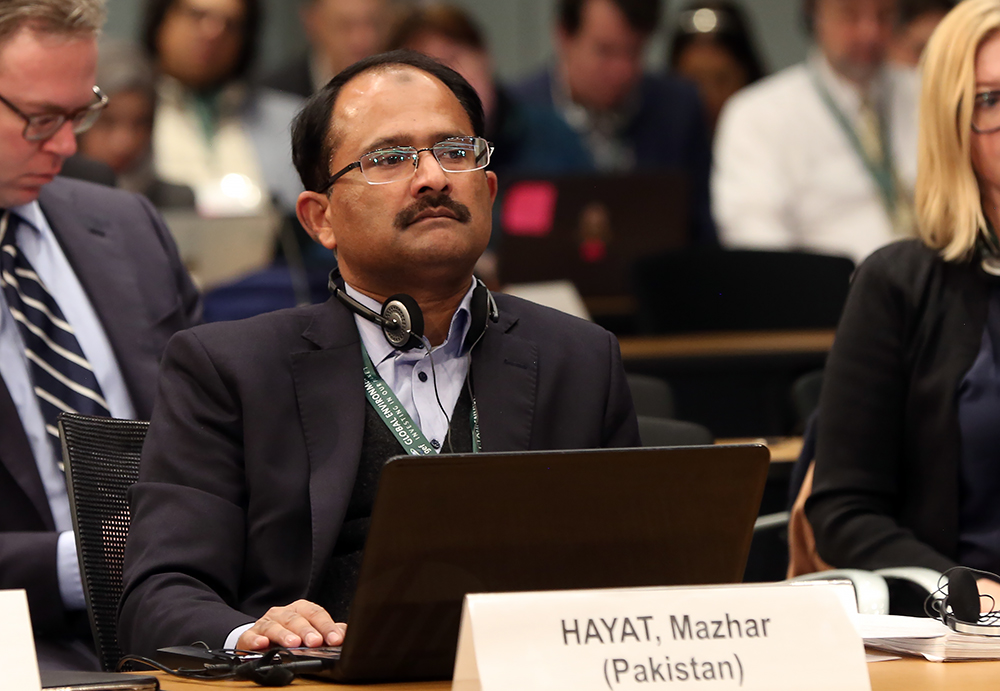
Mazhar Hayat, Alternate Council Member, Pakistan
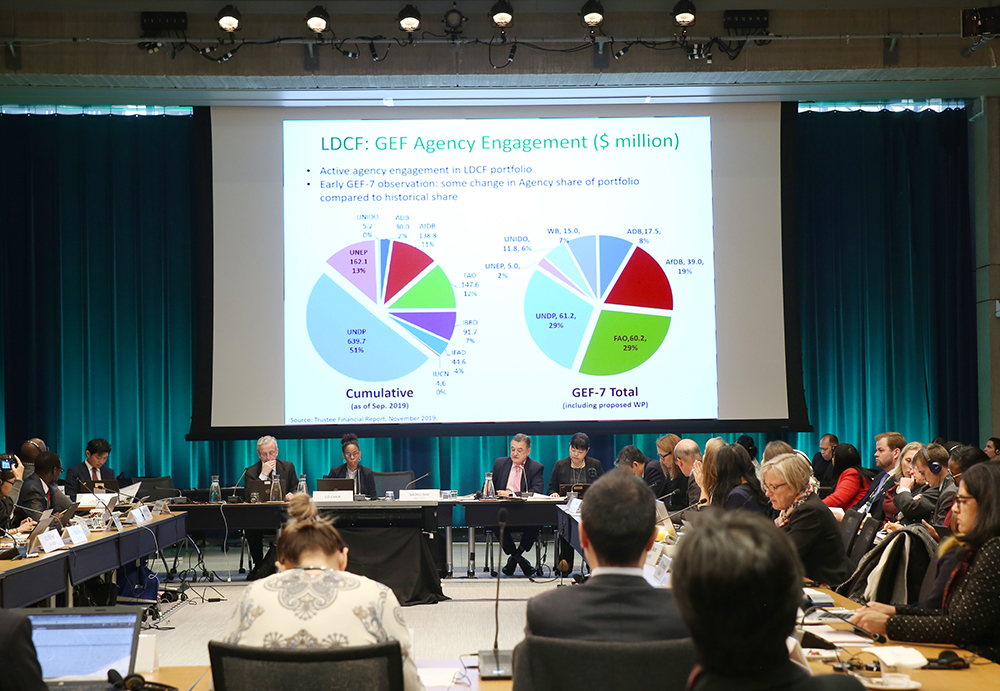
Council Members listen to a presentation on GEF Agency engagement in the LDCF portfolio.
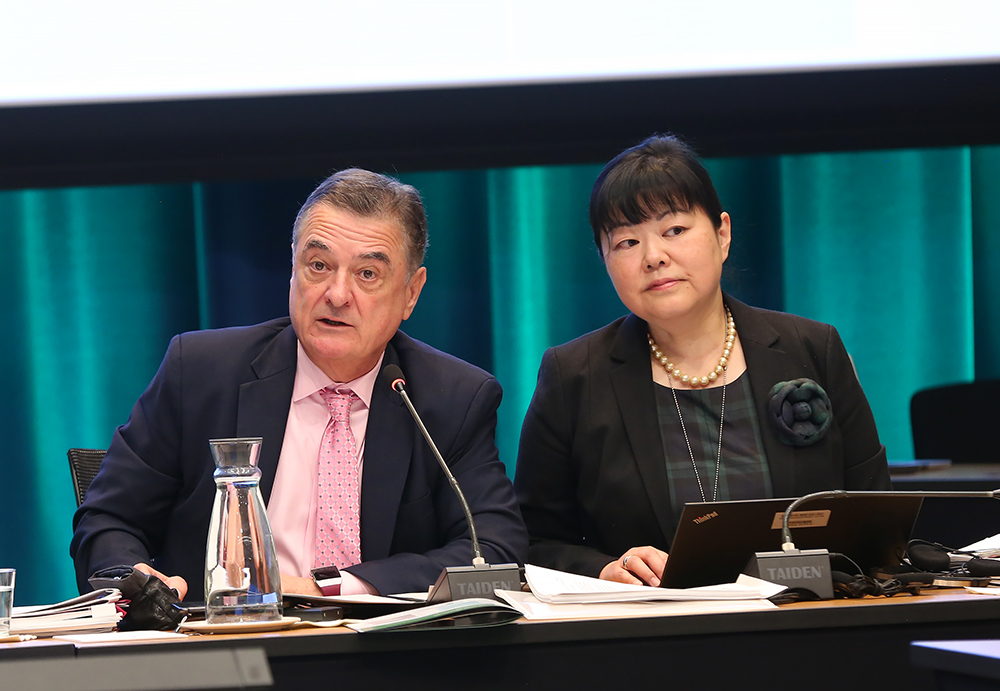
L-R: Gustavo Fonseca and Chizuru Aoki, GEF Secretariat
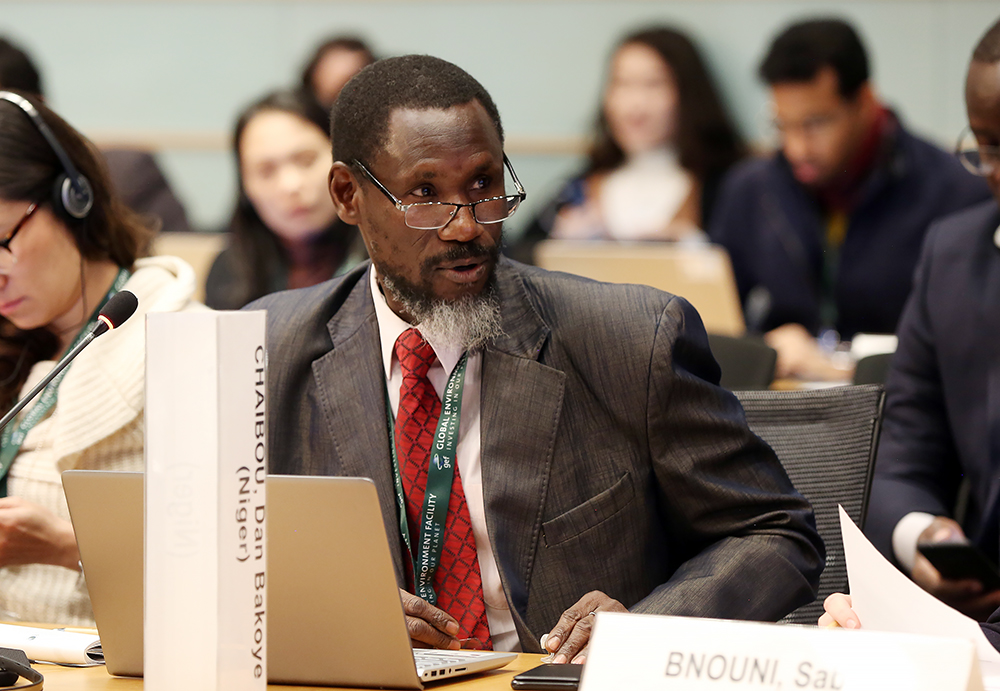
Dan Bakoye Chaibou, Council Member, Niger
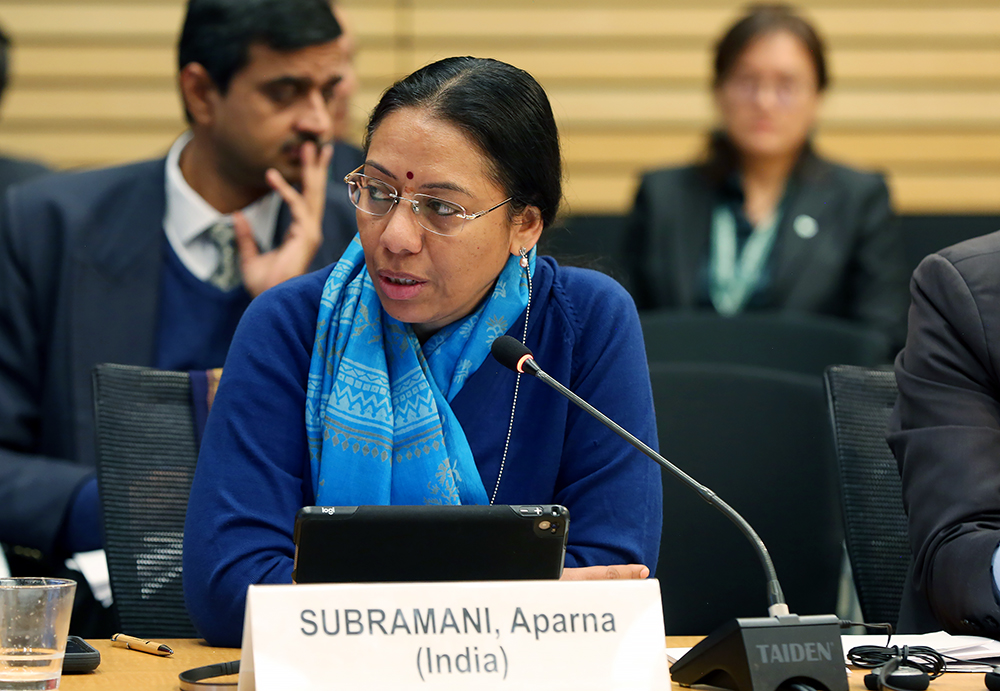
Aparna Subramani, Council Member, India
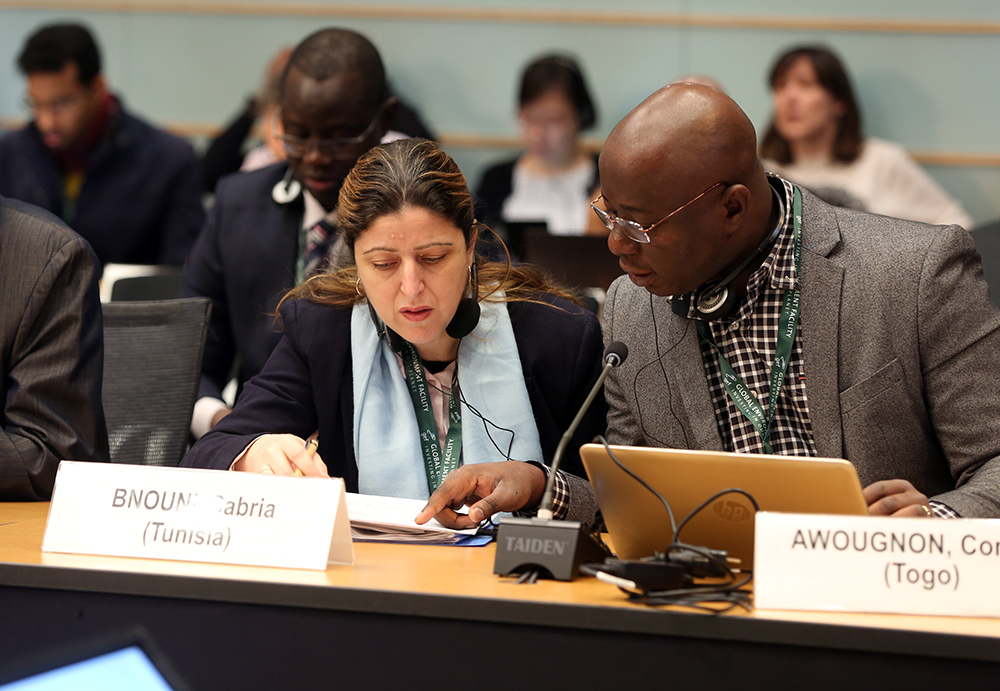
L-R: Sabria Bnouni, Council Member, Tunisia, confers with Comlan Awougnon, Council Member, Togo.
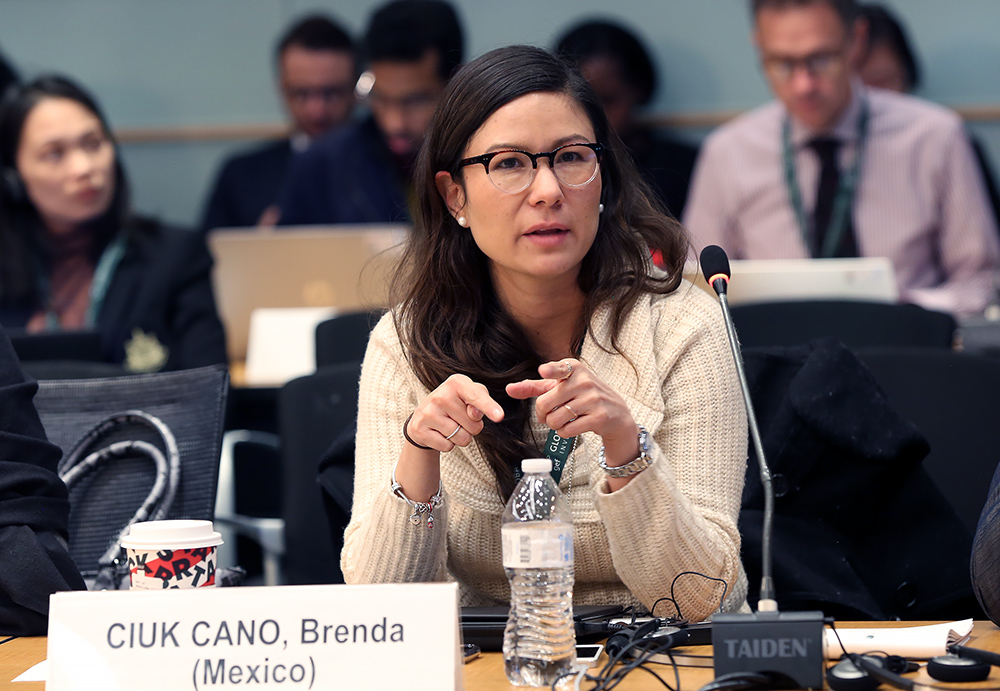
Brenda Ciuk Cano, Council Member, Mexico
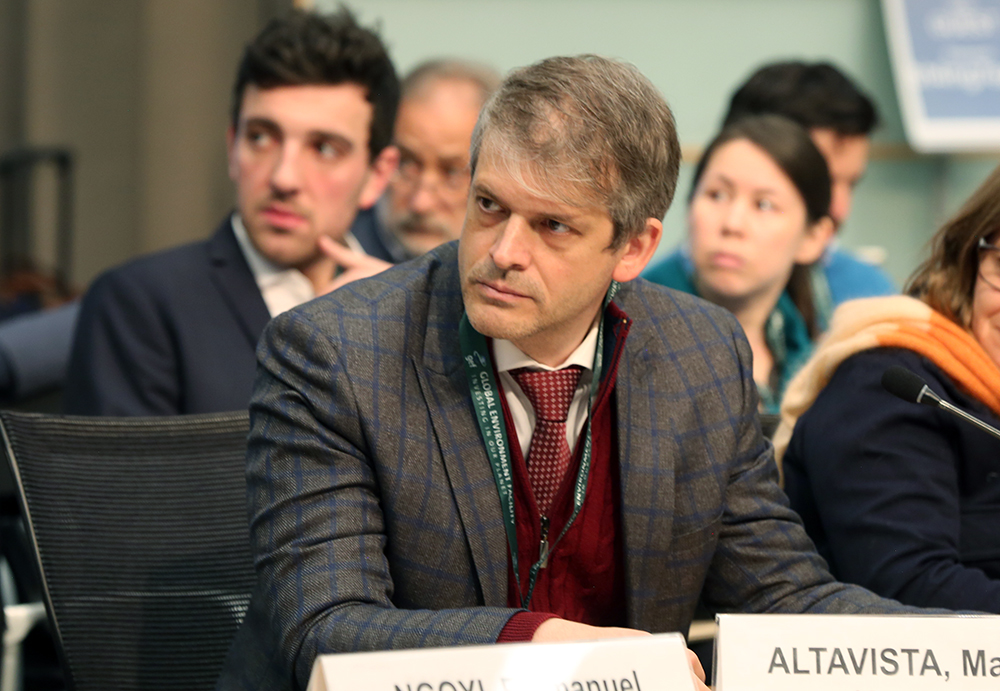
Manrique Altavista, Alternate Council Member, Argentina
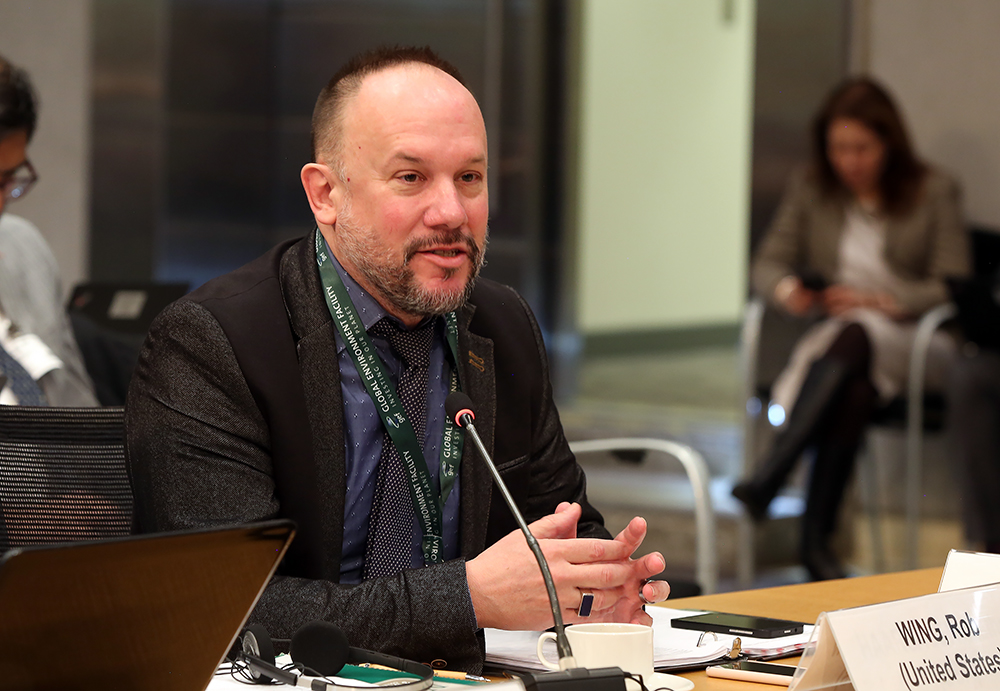
Rob Wing, Alternate Council Member, US
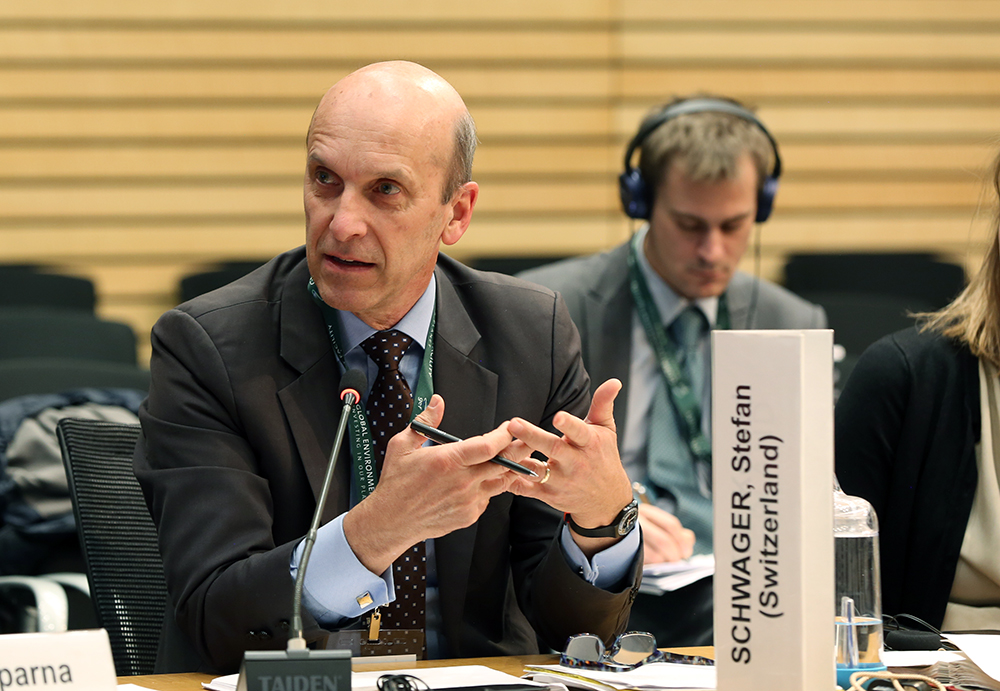
Stefan Schwager, Council Member, Switzerland
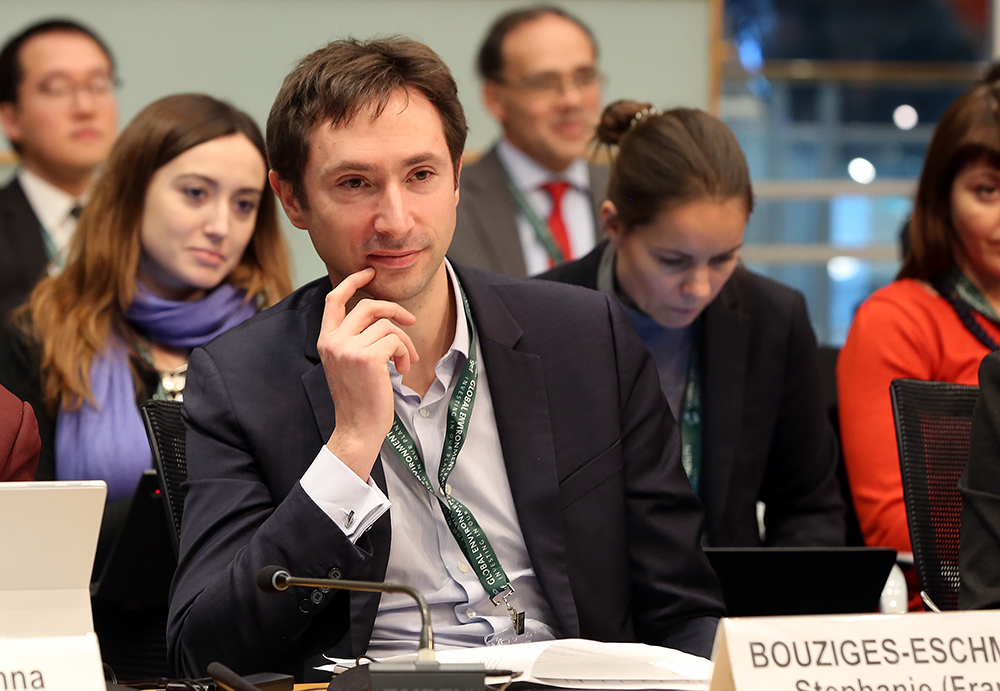
Léonardo Puppetto, Council Member, France
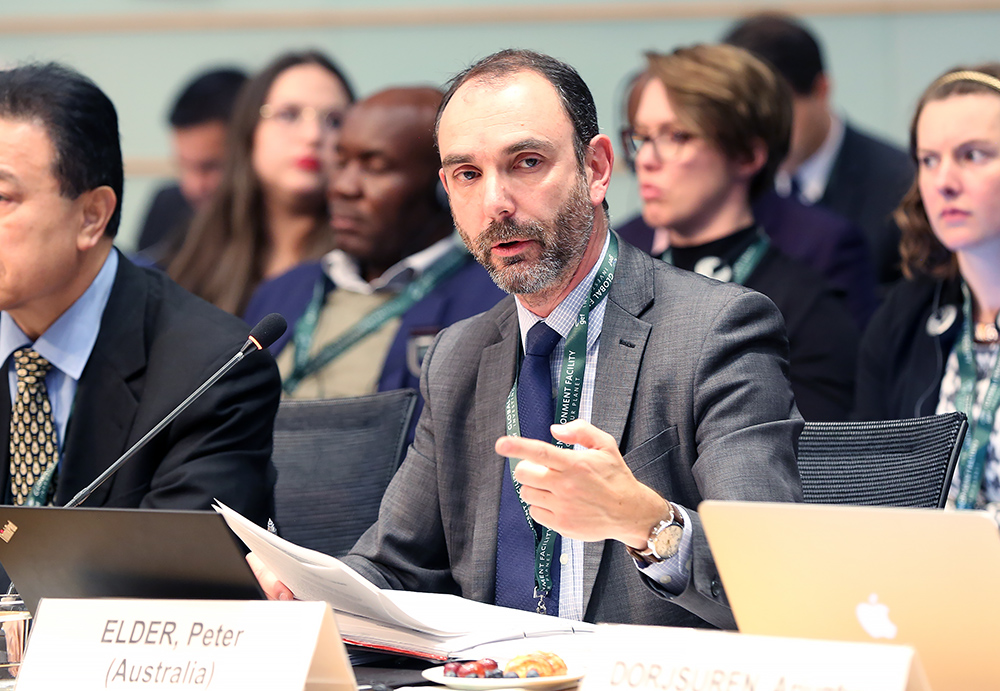
Peter Elder, Council Member, Australia
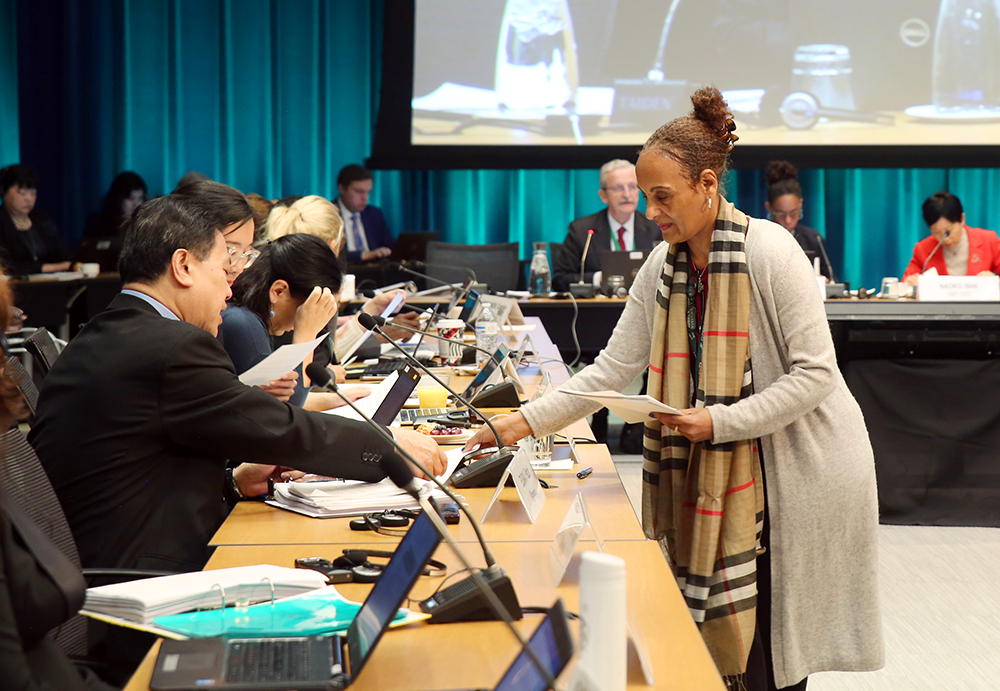
Tigest Tirfe, GEF Secretariat, distributes the Joint Summary of the Chairs to Council Members.
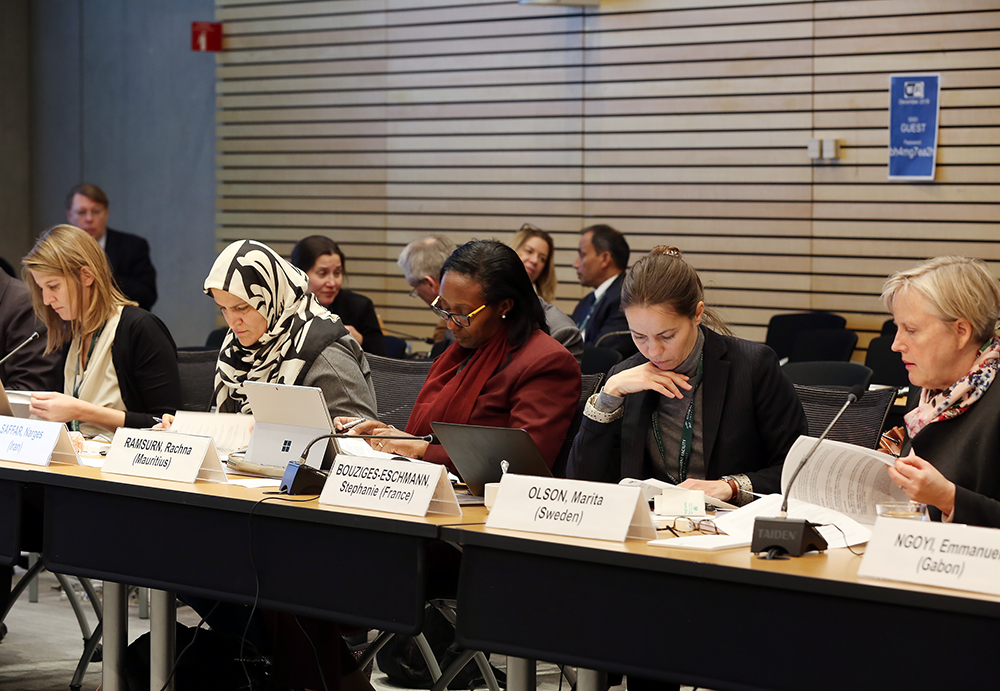
Council Members review the Joint Summary of the Chairs.
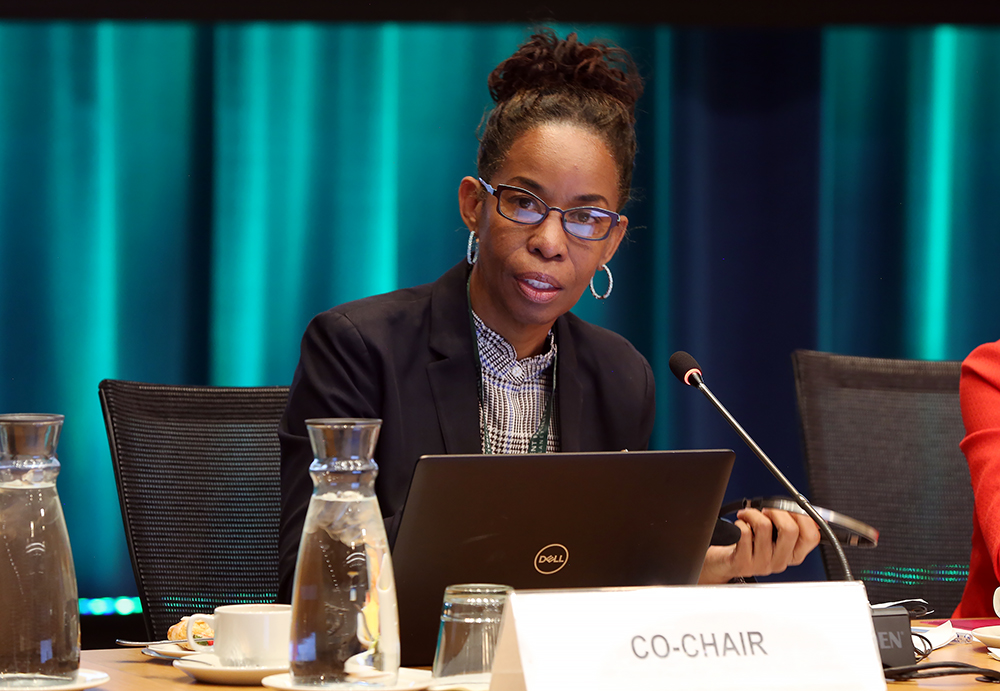
Gillian Guthrie, Co-Chair of the 57th meeting of the GEF Council, delivers her closing remarks.
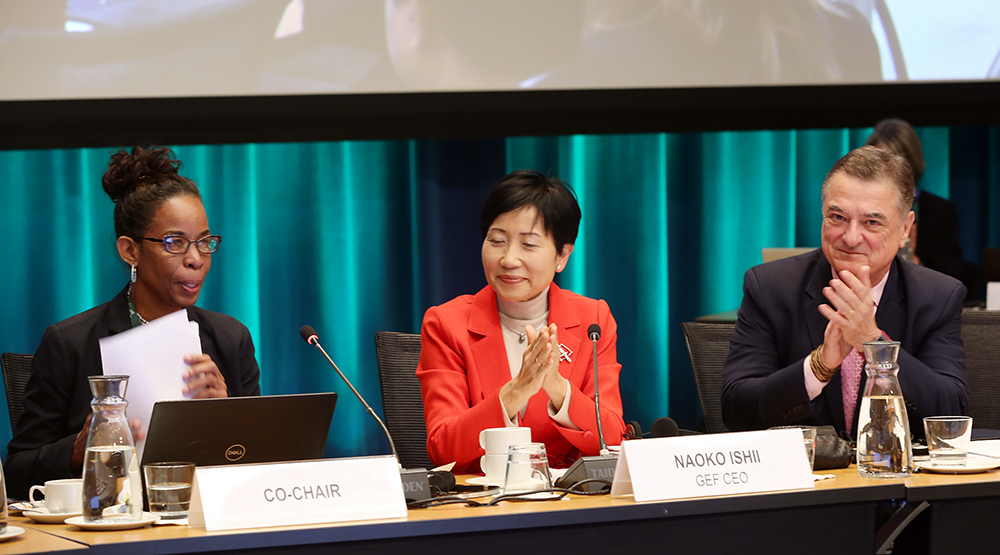
L-R: Gillian Guthrie, Co-Chair of the 57th meeting of the GEF Council; Naoko Ishii, GEF CEO and Chairperson; and Gustavo Fonseca, GEF Secretariat
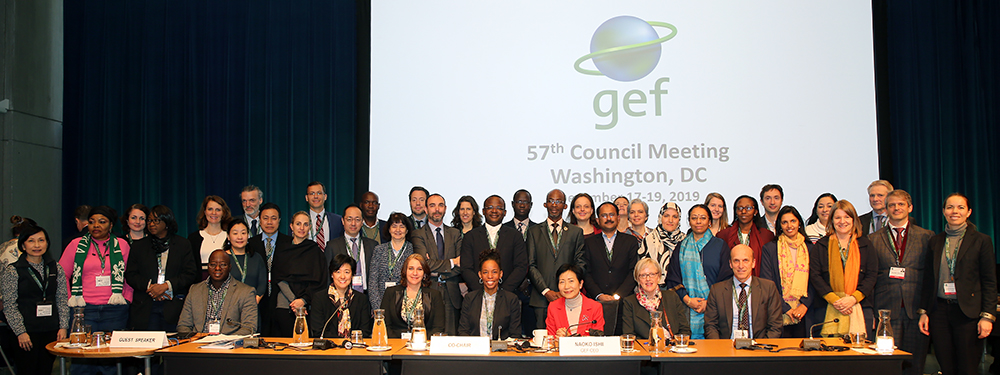
Family photo of the 57th meeting of the GEF Council
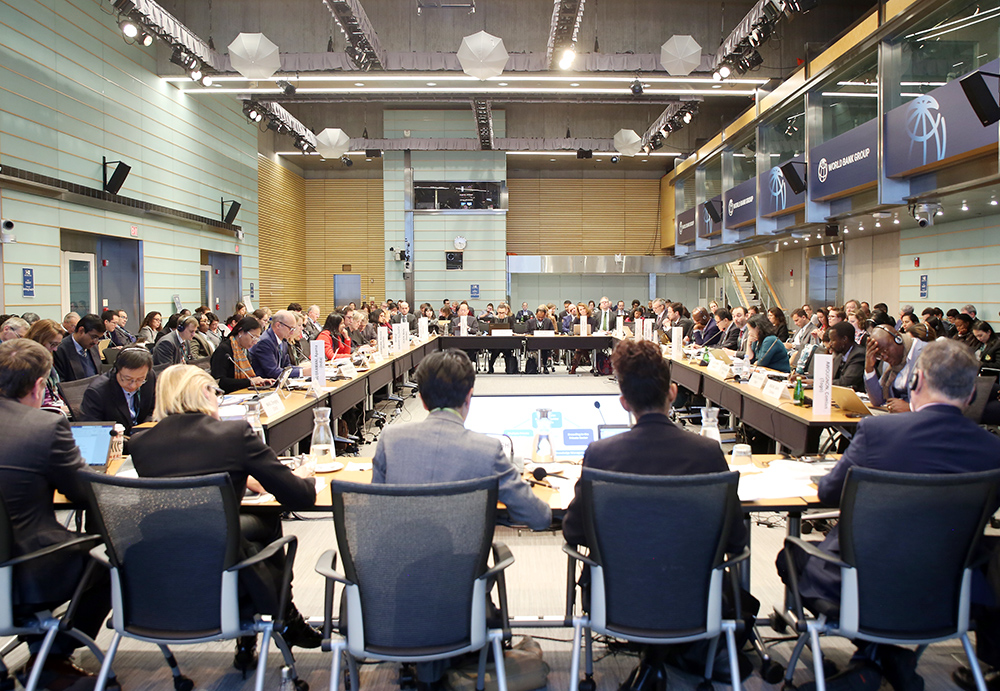
A view of the plenary session from the dais
On Wednesday morning the GEF Secretariat presented the Work Program, amounting to USD 588.5 million, including two Impact Programs on sustainable cities and on food systems, land use and restoration, as well as the first three Non-Grant Instruments and the first dedicated GEF-funded initiative that will focus entirely on indigenous peoples. The Secretariat noted that the Work Program will almost fully achieve GEF-7 targets regarding marine protected areas and land restoration and will contribute substantially to meeting targets regarding emissions of greenhouse gases and persistent organic pollutants.
After seeking a number of clarifications and offering comments about specific elements and projects, Council Members approved the Work Program, which will benefit 87 recipient countries, including 25 Least Developed Countries (LDCs) and 24 small island developing States (SIDS).
Council Members considered a report by the GEF Independent Evaluation Office (IEO) on its December 2019 Semi-Annual Evaluation of the GEF, and on a methodological approach for post-completion verification. They acknowledged the IEO’s progress cited in the report and, following an exchange of views and suggestions for improvement, endorsed the draft post-completion verification methodology.
The GEF Secretariat presented, and Council Members generally welcomed, a proposed Private Sector Engagement Strategy. Many Council Members felt it would benefit from a redrafting, to provide further clarification and greater detail, and several Members requested more time for consultations about the proposed Strategy to bring their constituencies on board. Some Members called for a detailed implementation plan to be proposed to the Council. A decision was adopted, calling for the Secretariat to present a revised strategy at the June 2020 Council meeting, taking into account Council Members’ comments and broader consultations, and to present an implementation plan no later than the December 2020 Council meeting.
Council Members also considered the Strategic Country Cluster Evaluation of the SIDS, and heard updates by the Executive Secretary of the Minamata Convention on Mercury, the acting Executive Secretary of the Convention on Biological Diversity (CBD), the Chair of the Open-Ended Working Group on the Post-2020 Global Biodiversity Framework, and the Ozone Secretariat.
Revised draft decisions on minimum fiduciary standards and the GEF Monitoring Report 2019 were adopted after brief discussion.
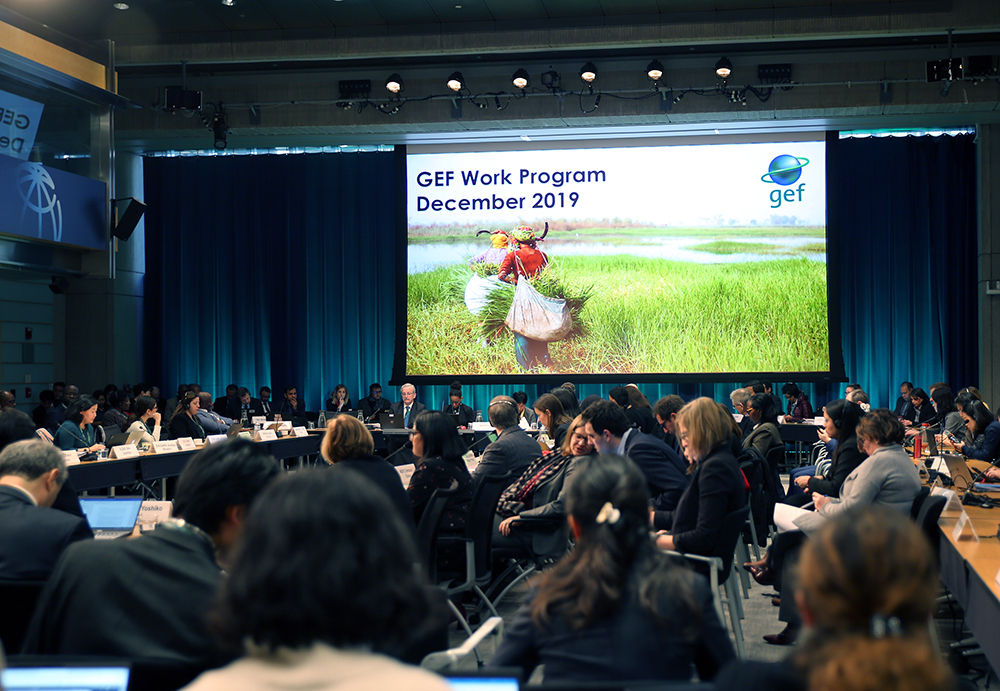
Participants listen to Naoko Ishii, GEF CEO and Chairperson, elaborating on the GEF’s role in navigating transformational change.
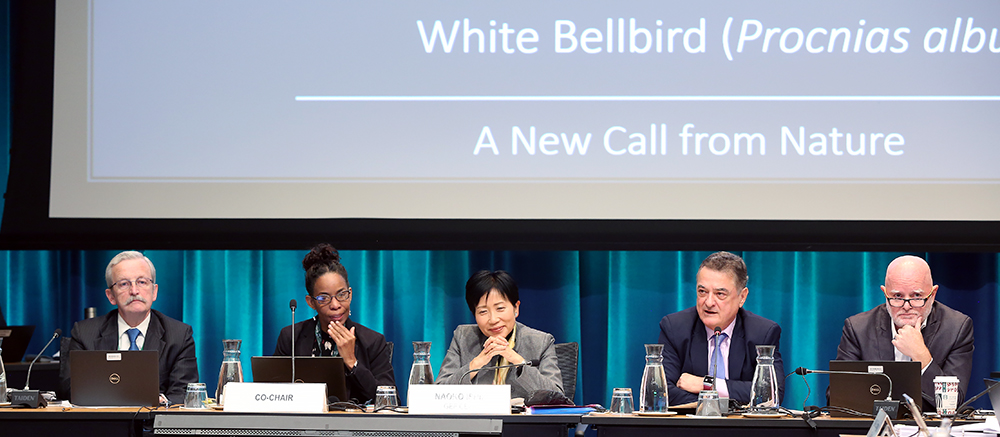
L-R: William Ehlers, GEF Secretariat; Gillian Guthrie, Co-Chair of the 57th GEF Council meeting; Naoko Ishii, GEF CEO and Chairperson; Gustavo Fonseca, GEF Secretariat; and Claude Gascon, GEF Secretariat
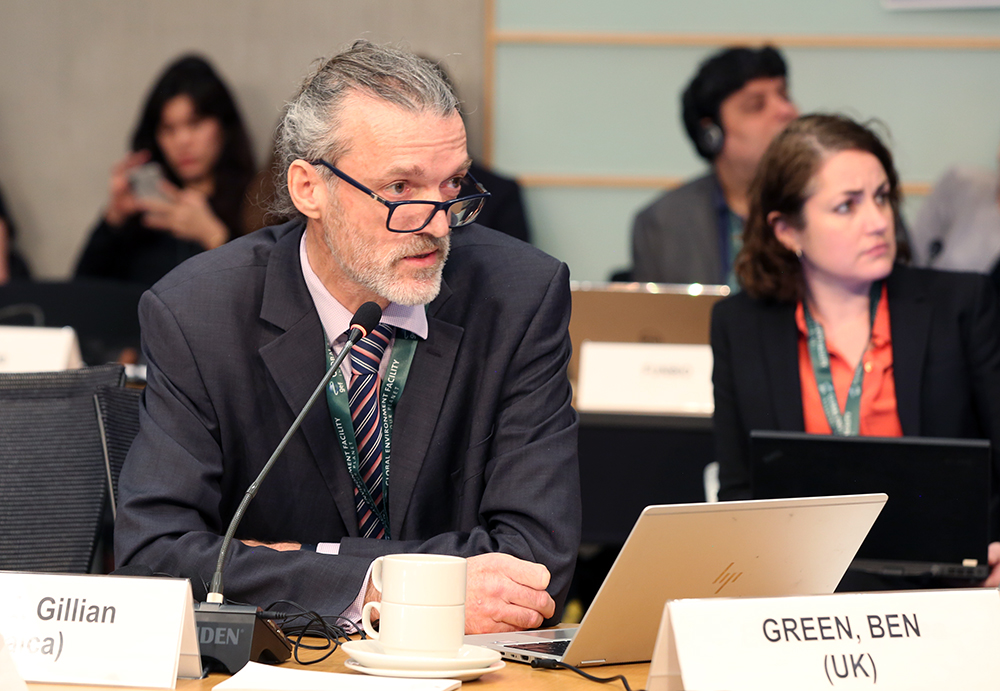
Ben Green, Council Member, UK
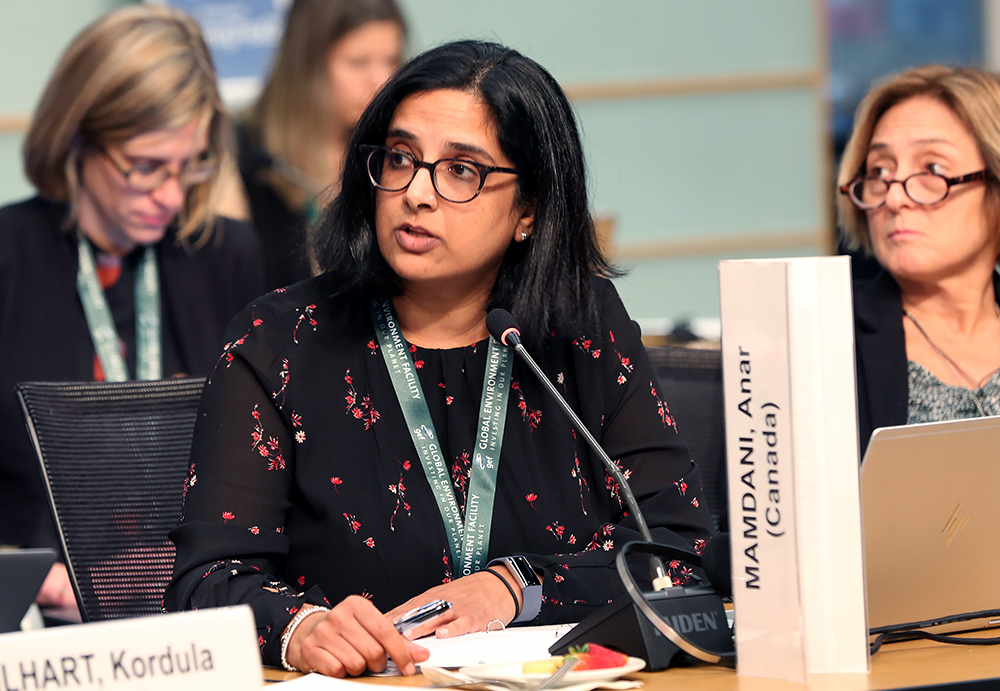
Anar Mamdani, Council Member, Canada
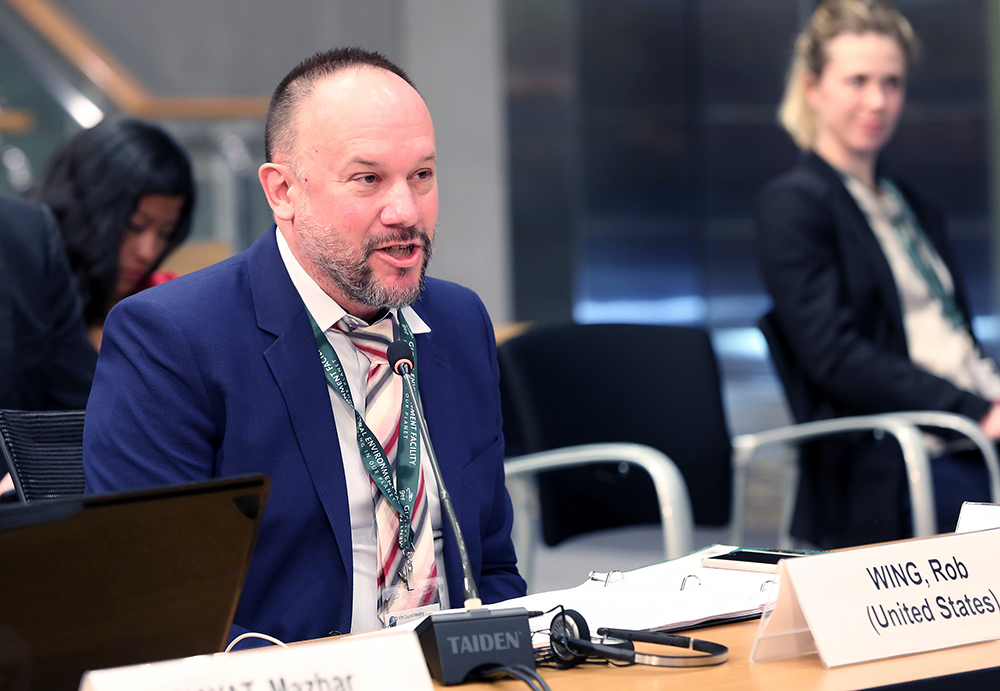
Rob Wing, Alternate Council Member, US
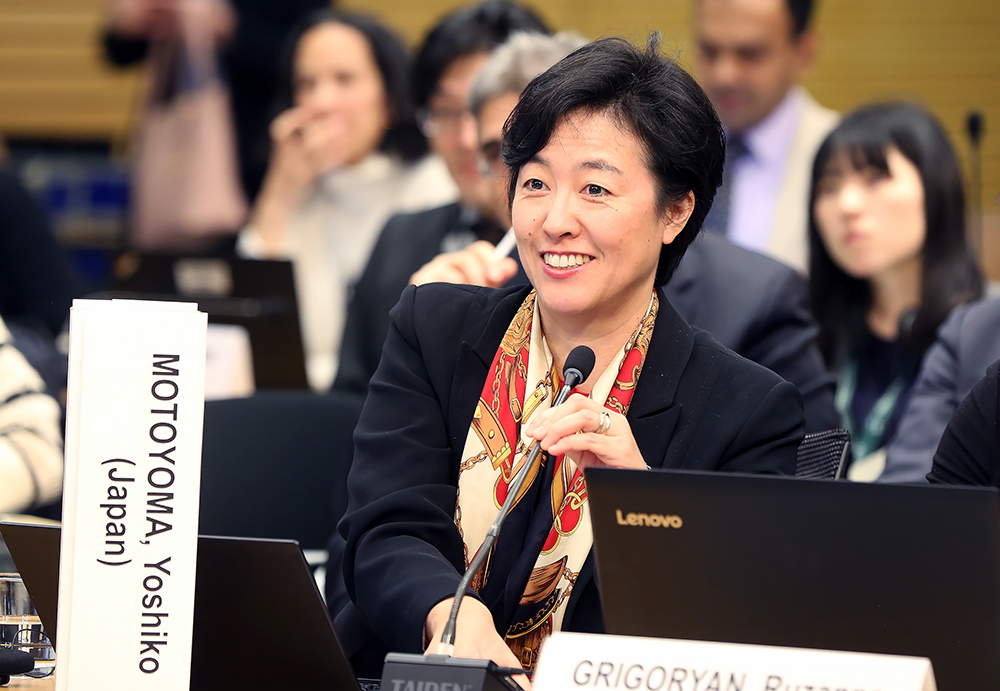
Yoshiko Motoyama, Alternate Council Member, Japan
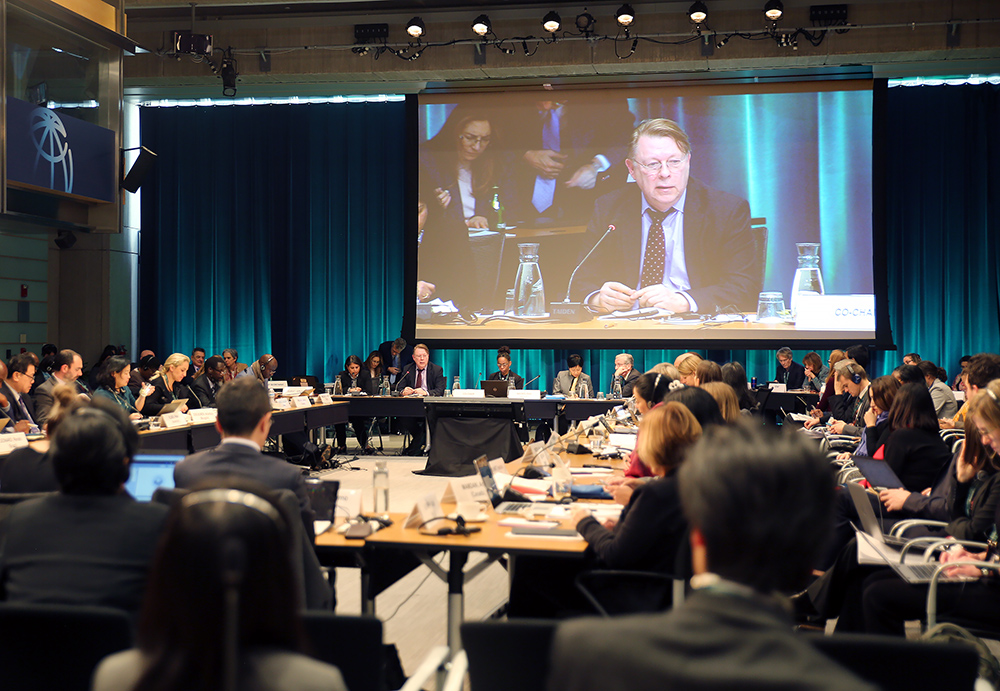
Juha Uitto, Director, IEO, presents the IEO's Semi-Annual Evaluation Report.
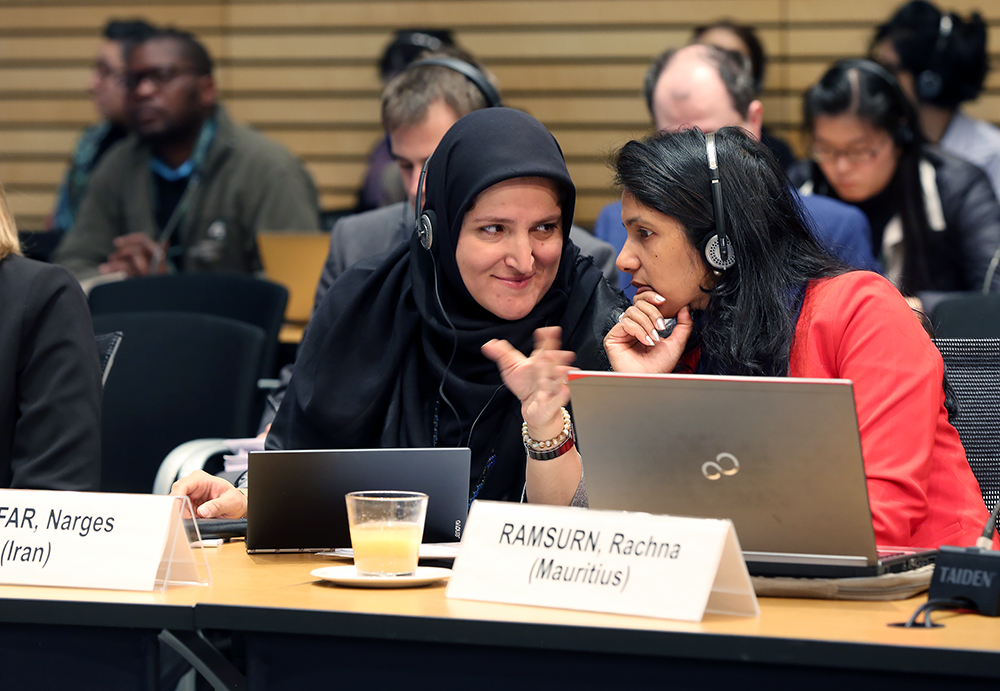
L-R: Narges Saffar, Council Member, Iran, confers with Rachna Ramsurn, Council Member, Mauritius.
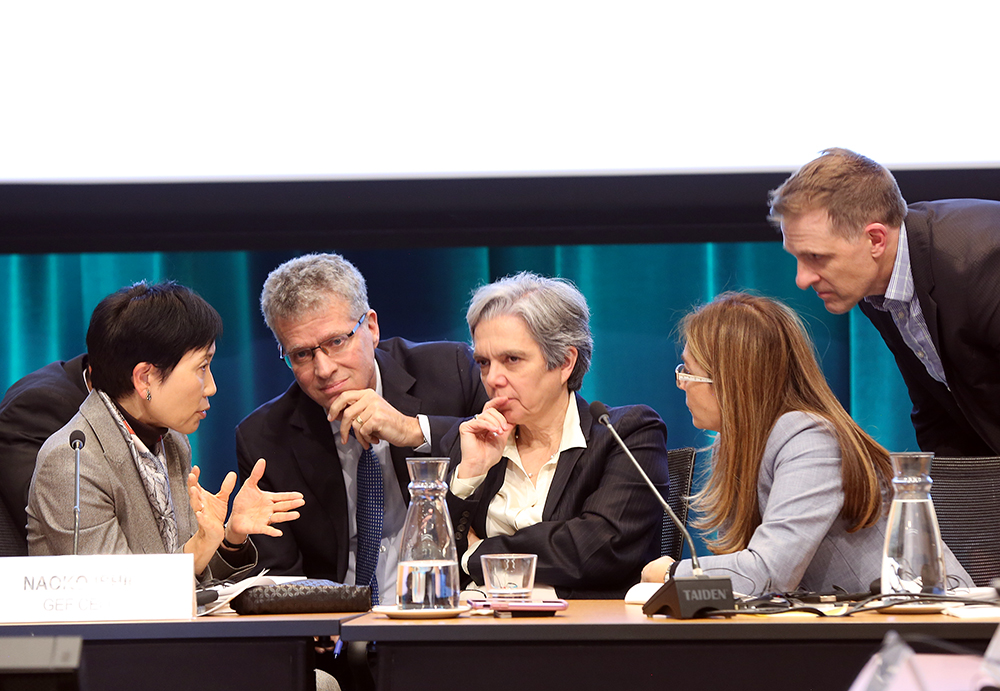
Naoko Ishii, GEF CEO and Chairperson (left), confers with GEF Secretariat staff members.
Naoko Ishii, GEF CEO and Chairperson, opened the 57th meeting of the GEF Council, highlighting the GEF’s role in “navigating” the needed “massive, unprecedented” systems change, underpinned by scientific findings and economic benefits. Warning about the “huge costs of inaction,” she called for a multi-stakeholder coalition of national and subnational governments, businesses and citizens to transform the energy, food and city systems. She also suggested using “super year 2020” to set a nature target, similar to the 1.5°C climate goal, and identifying ways to achieve it.
The GEF Secretariat presented the GEF Monitoring Report 2019, which includes a “deep dive” on the GEF Small Grant Programme (SGP). Council Members welcomed the Report, identifying several areas for improvement and seeking clarification on, among other things, the governance of the SGP and the low performance rating of certain focal areas.
Council Members considered a proposed updated policy on minimum fiduciary standards. Discussion focused, in particular, on numerous suggestions made by many Council Members for strengthening language on when and how the Council is informed of any potential issue with regard to compliance with the standards. Following proposals to establish an audit committee for review of compliance, in the context of Agencies’ sensitivities about confidentiality, several members undertook to draft terms of reference for such a committee, for later consideration.
The Council discussed the first report assessing compliance by the 18 implementing Agencies with the GEF’s minimum standards on environmental and social safeguards, gender equality and stakeholder engagement, including 14 Agencies’ action plans for coming into full compliance. Council Members adopted a decision asking the Secretariat to update future Council sessions on progress in implementing the plans of action.
The Secretariat presented a report on improving the durability of GEF investments, suggesting four elements to incorporate into the design and implementation of projects and programs. The Council adopted a decision welcoming the analysis and agreeing on follow-up steps suggested by the Secretariat.
Council Members also heard a report of the Chairperson of the Scientific and Technical Advisory Panel (STAP).
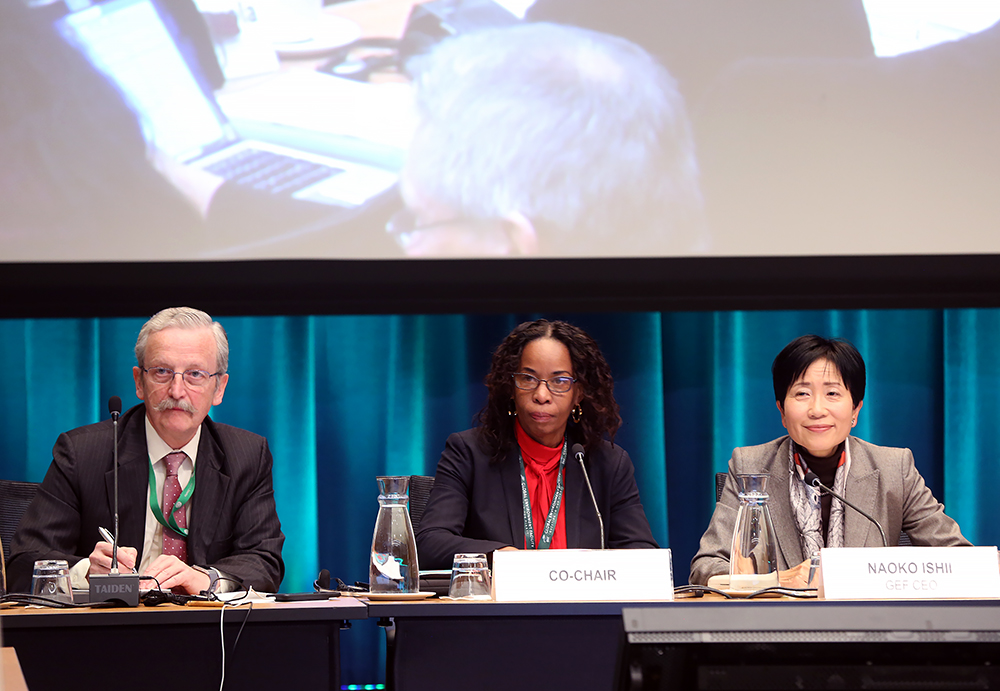
L-R: William Ehlers, GEF Secretariat; Gillian Guthrie, Jamaica, Co-Chair of the 57th meeting of the GEF Council; and Naoko Ishii, GEF CEO and Chairperson
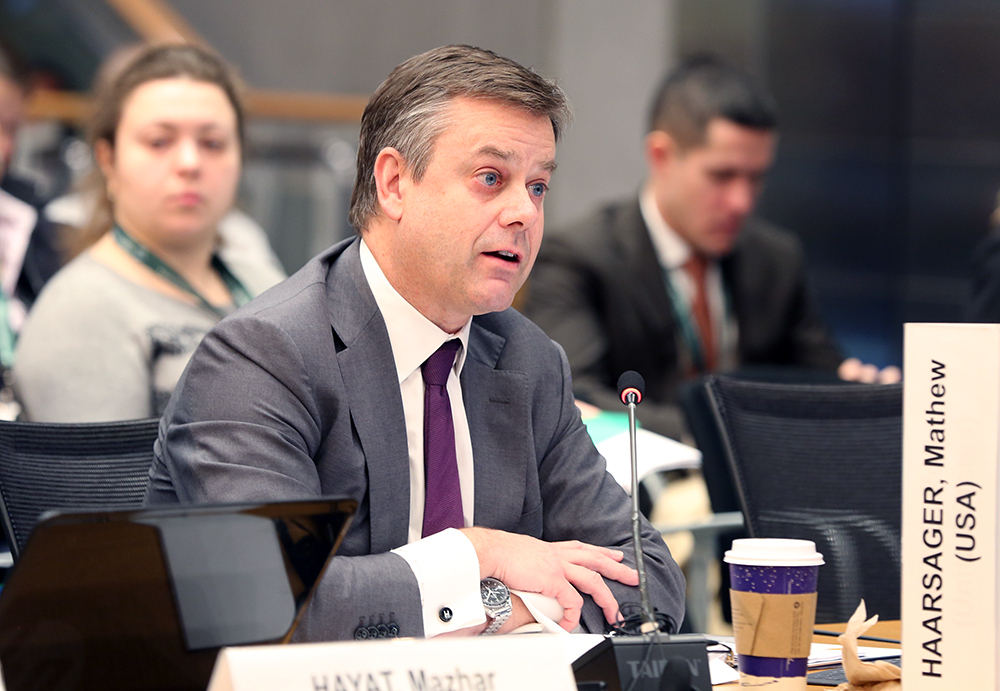
Matthew Haarsager, Council Member, US
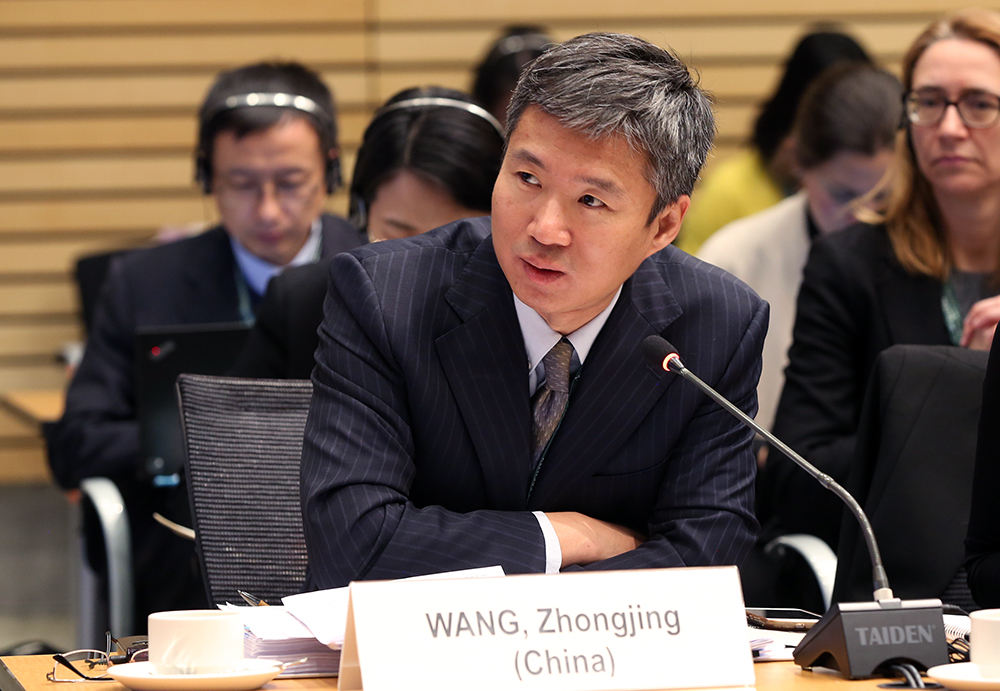
Zhongjing Wang, Council Member, China
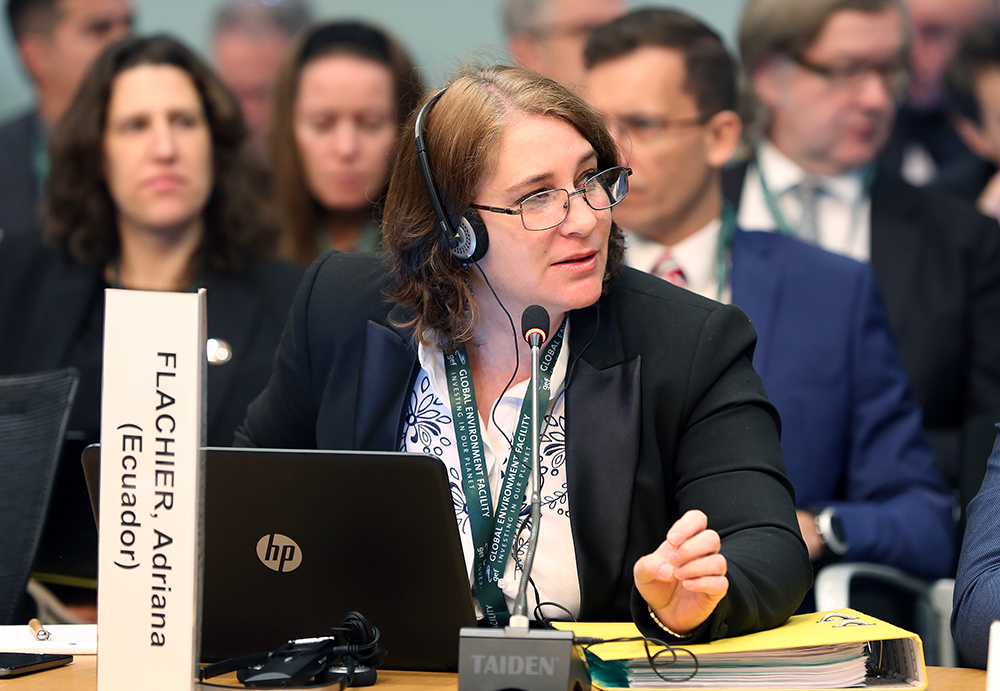
Adriana Leticia Flachier Troya, Council Member, Ecuador
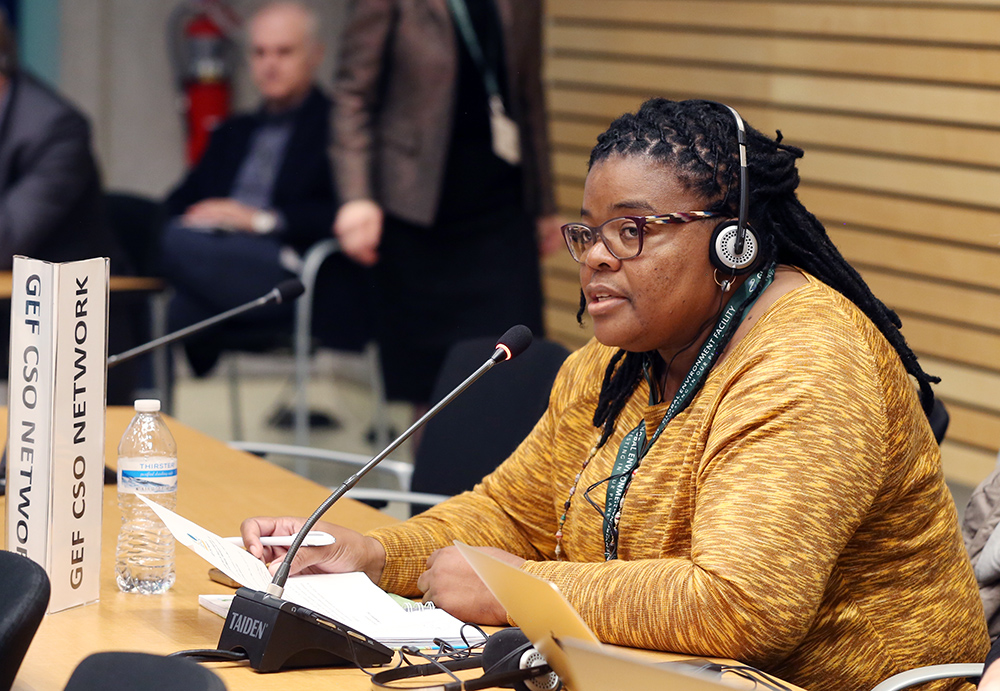
Maxi Louis, GEF-CSO Network
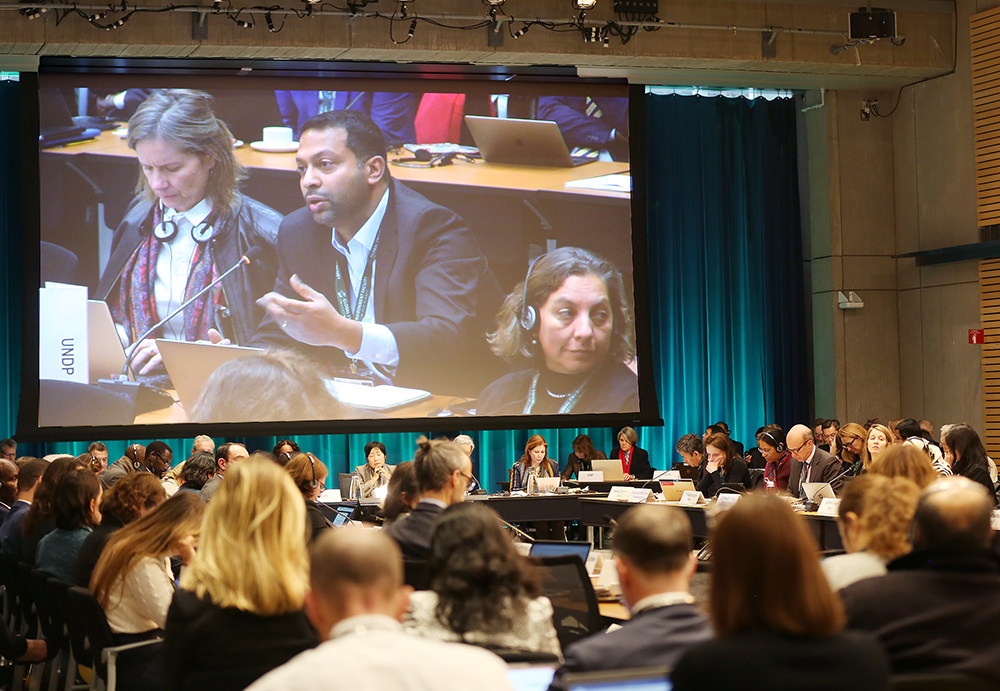
Pradeep Kurukulasuriya, UN Development Programme, responds to questions from Council Members.
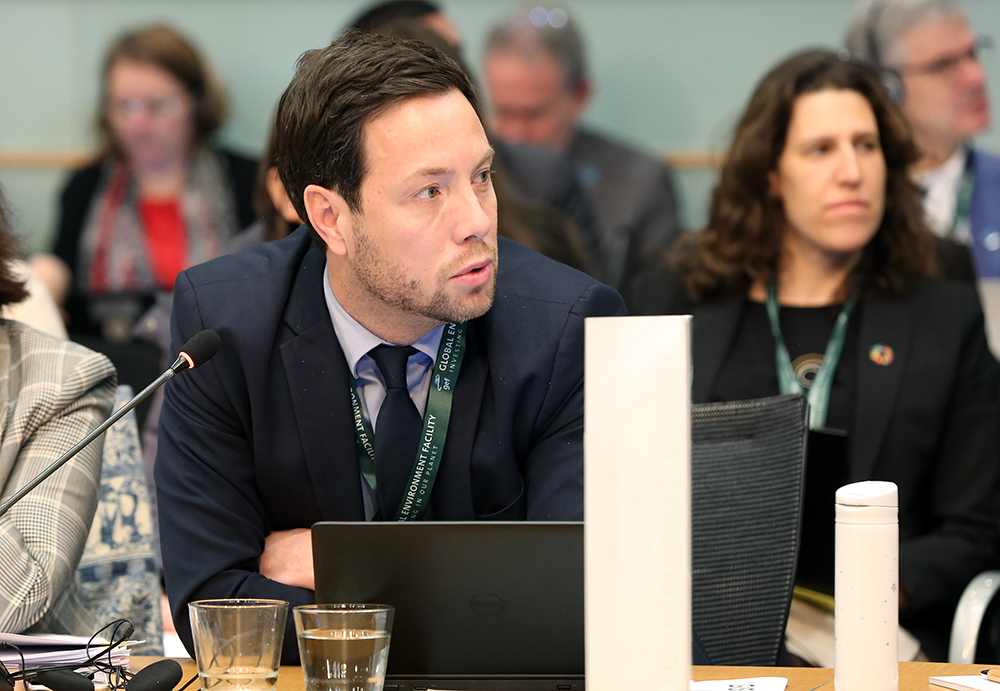
Tobias Von Platen-Hallermund, Alternate Council Member, Denmark
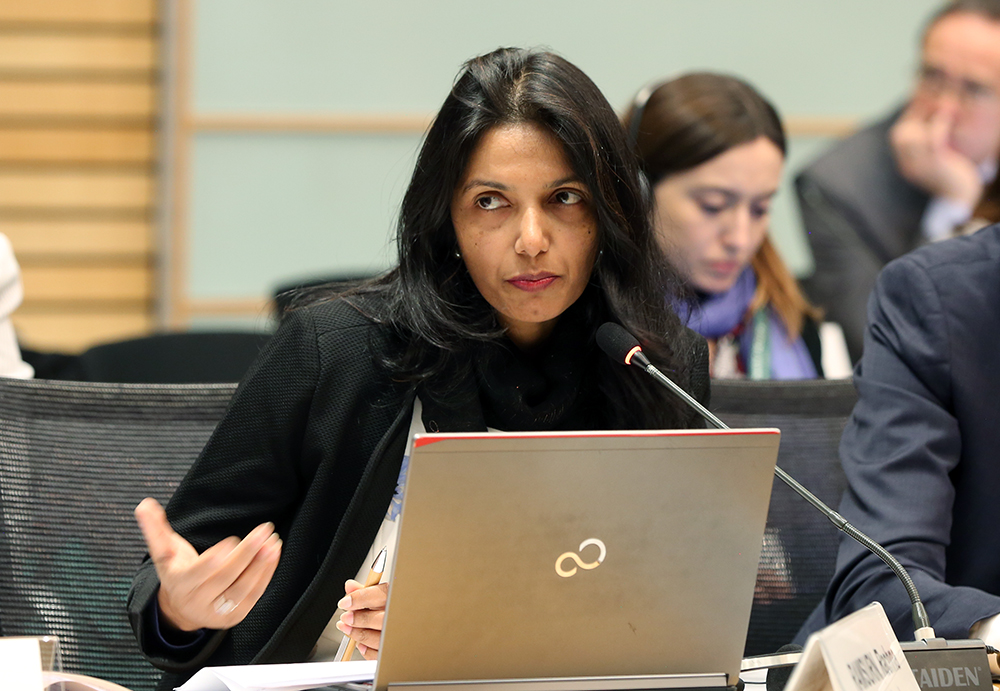
Rachna Ramsurn, Council Member, Mauritius
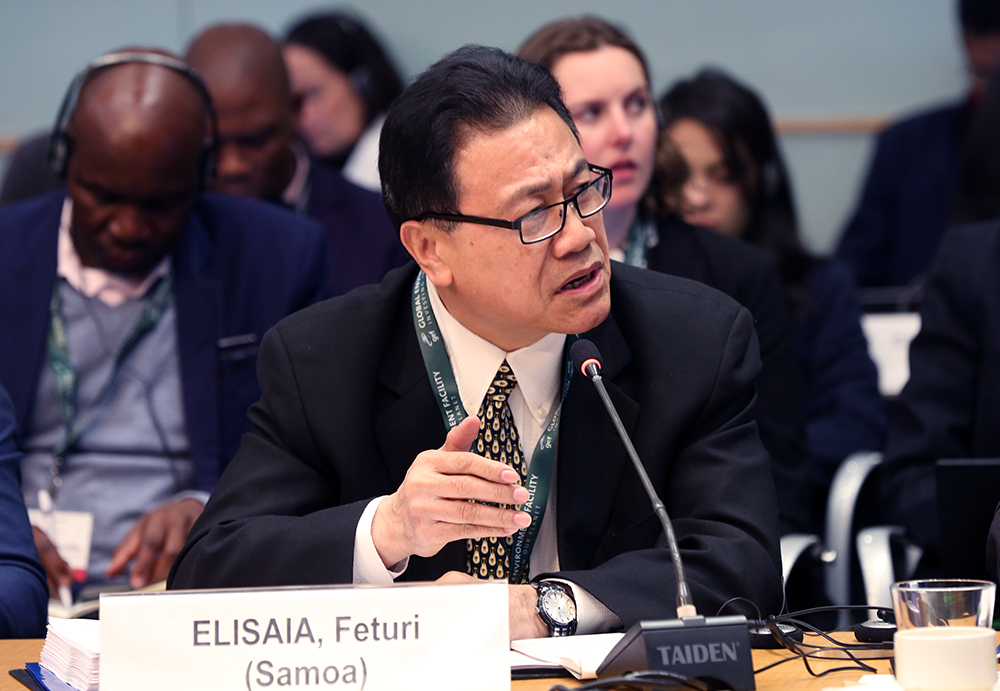
Feturi Elisaia, Samoa
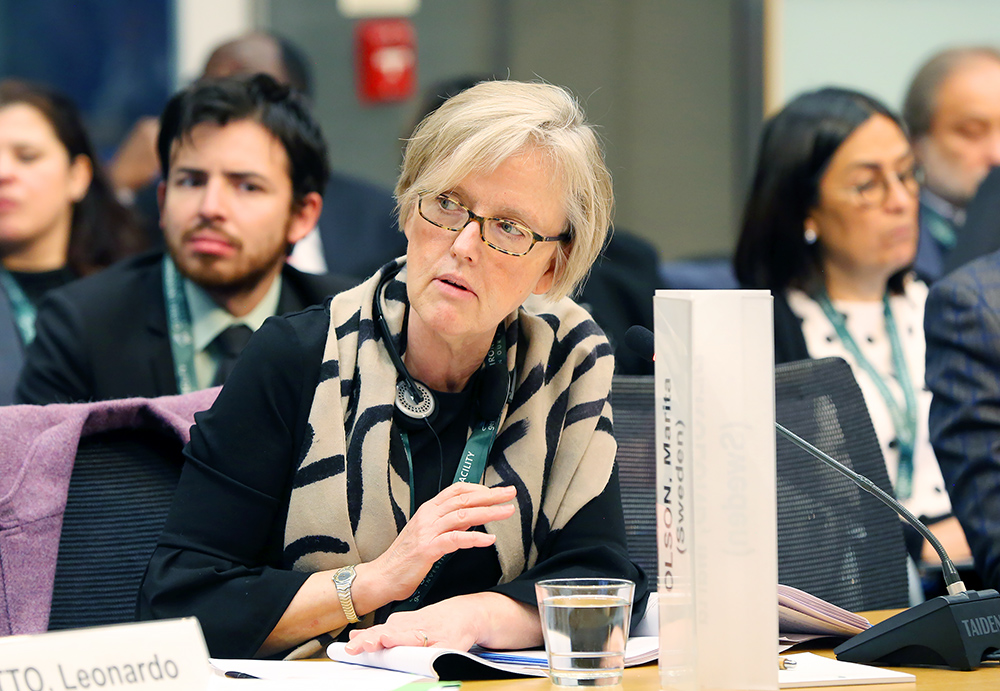
Marita Olson, Council Member, Sweden
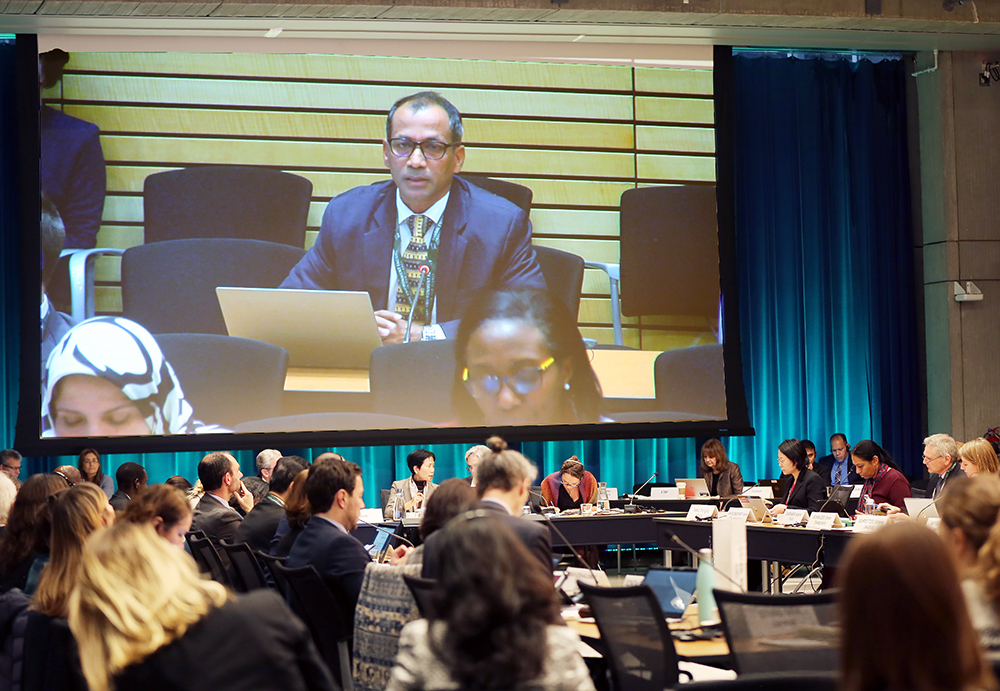
Akhteruzzaman Sano, Chair, GEF-CSO Network, addresses Council Members
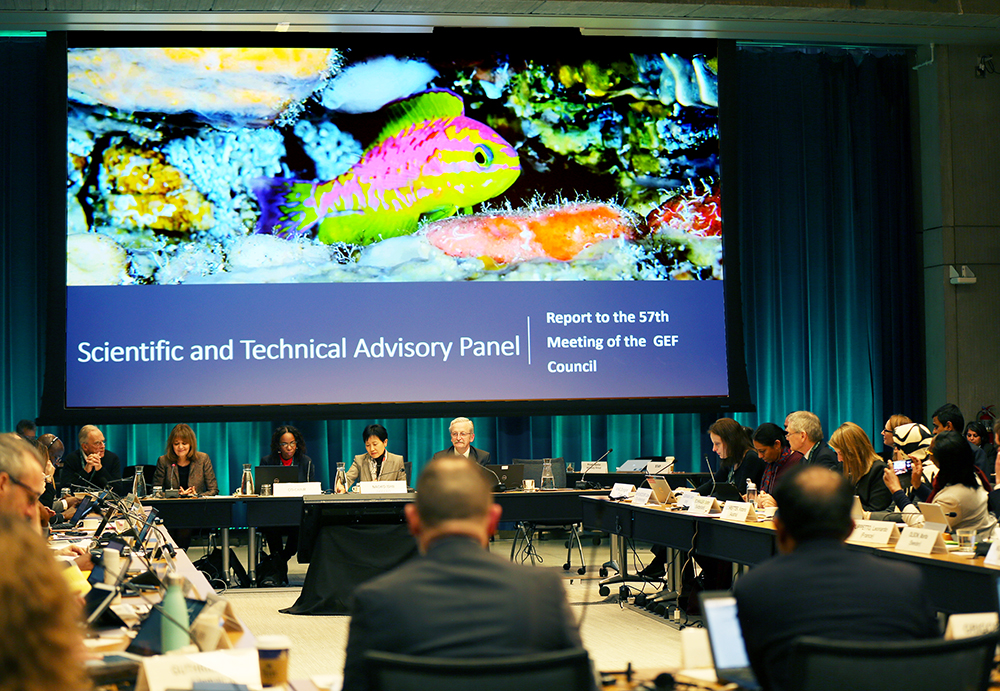
Participants view a slide from the presentation by Rosina Bierbaum, STAP Chair, showing the newly discovered Aphrodite fish.
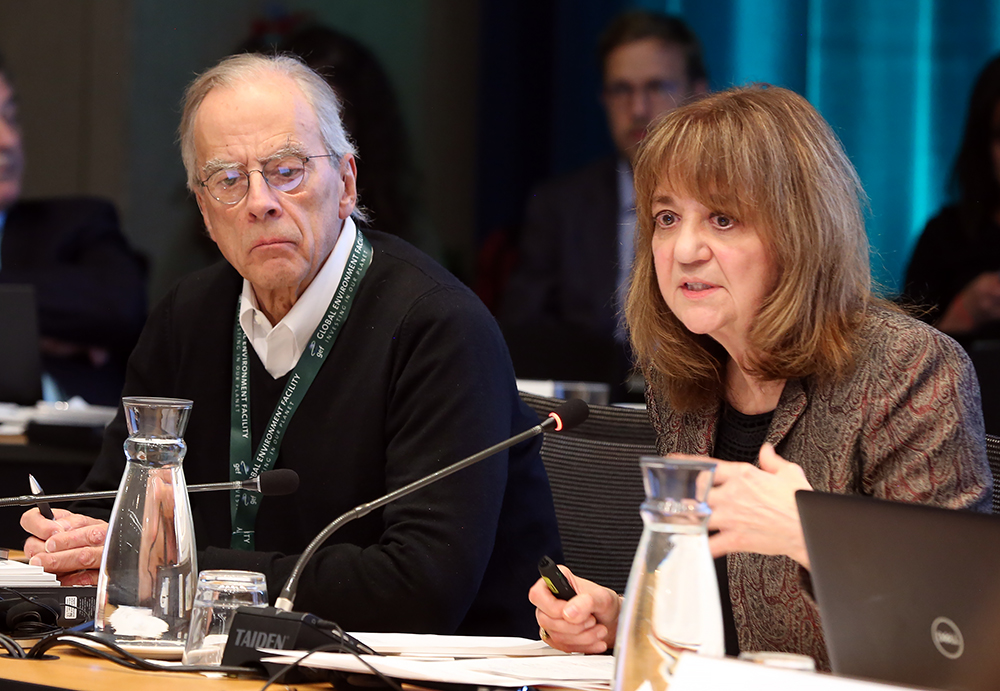
L-R: Christopher Whaley, STAP Secretary, and Rosina Bierbaum, STAP Chair
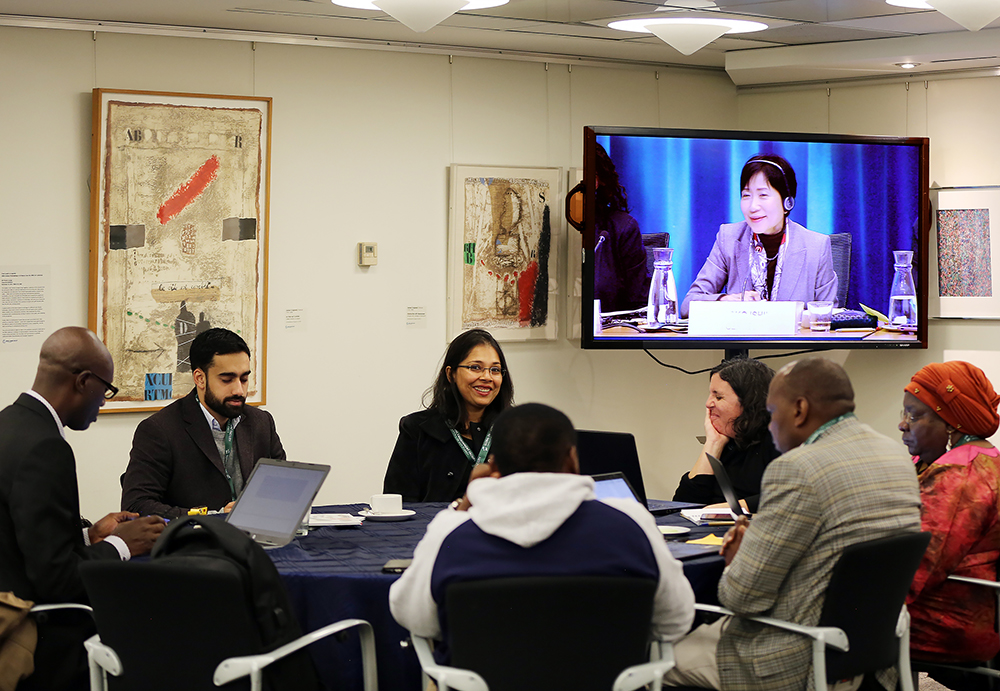
Participants from the GEF-CSO Network confer on the sidelines of the 57th meeting of the GEF Council.
GEF Council Consultation Meeting with CSOs
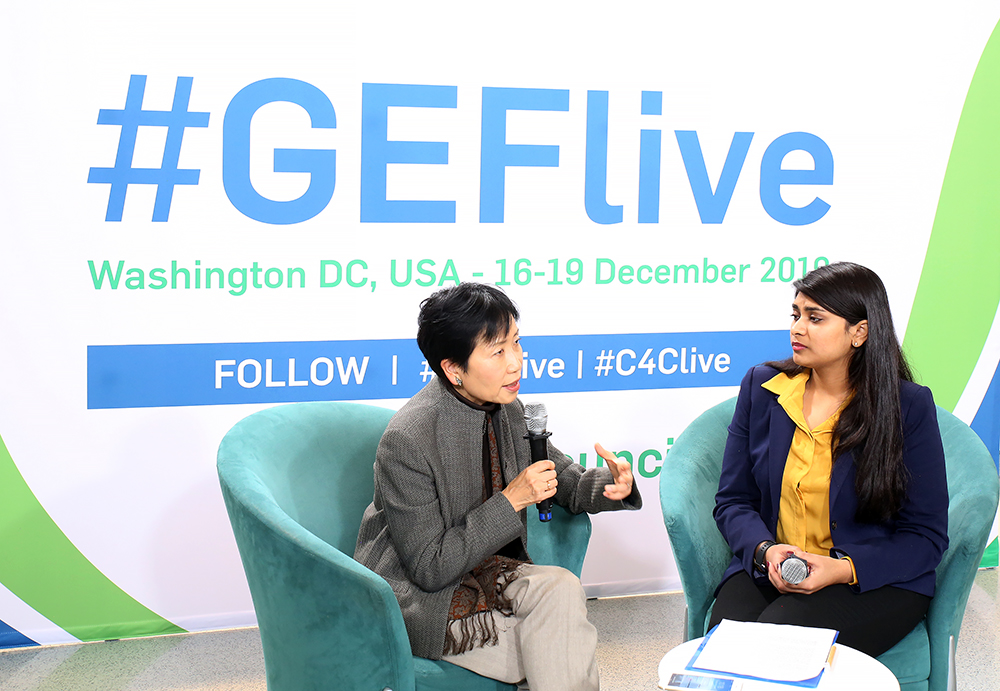
Naoko Ishii, GEF CEO and Chairperson, is interviewed for #GEFlive.
The Global Environment Facility (GEF) Council Consultation with Civil Society Organizations (CSOs) took place on 16 December 2019, at World Bank Headquarters in Washington, DC. It was organized in collaboration with the GEF CSO Network, the GEF Small Grants Programme (SGP), the Indigenous Peoples Advisory Group (IPAG) and the GEF-funded Global Wildlife Program (GWP) led by the World Bank. Participants discussed how civil society can engage in the GEF’s proposed Private Sector Engagement Strategy and how the Strategy can enable more meaningful engagement within the GEF architecture at global, regional and country levels. They also focused on issues related to combating the illegal wildlife trade, such as the role of communities in the management of conservation areas and in law enforcement, and the benefits of a wildlife economy for local communities.
CSO Dialogue with the GEF CEO
Akhteruzzaman Sano, Chair, GEF-CSO Network, stressed CSO willingness to work with governments and the GEF, suggested that future CSO consultations invite government ministers and address resilience and indigenous peoples’ knowledge, and called for establishing a capacity-building baseline before GEF-8.
GEF CEO and Chairperson Naoko Ishii emphasized the importance of multi-stakeholder coalitions to promote the massive economic transformation needed to respect planetary boundaries. Responding to interventions, she expressed hope that the Council would approve the proposed inclusive conservation initiative, denoted CSOs as key actors on the ground which can help design sustainability in GEF projects, and called for mainstreaming resilience into all GEF projects and programs.
Ornela Cuci, Alternate Council Member for Albania, stressed the importance of supporting sustainable capacity building at the university level and making projects results-oriented.
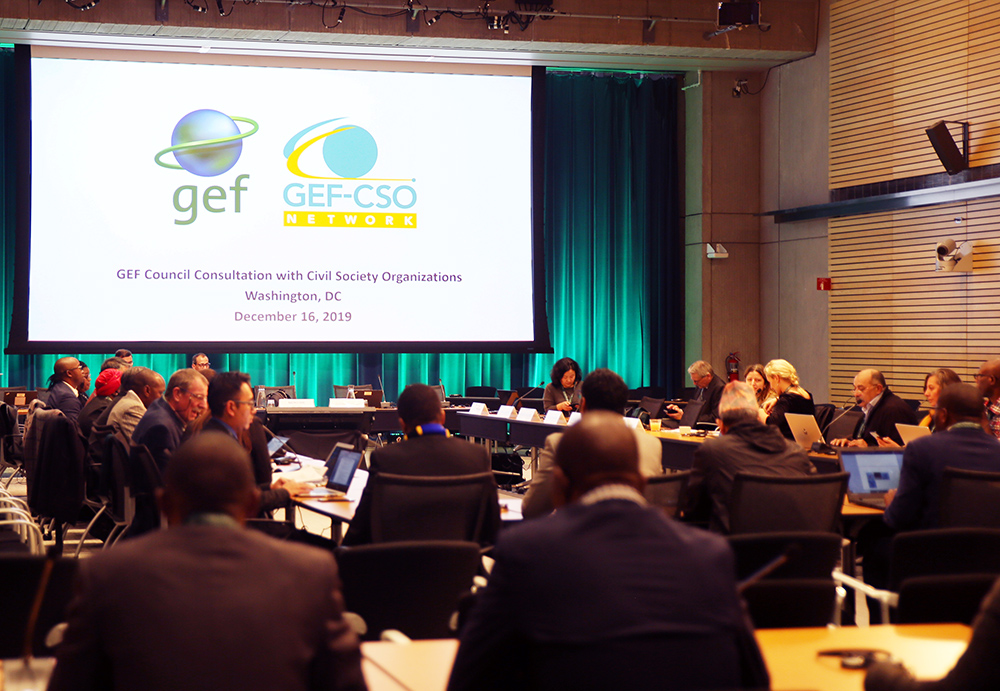
Participants wait for the GEF Council consultation with civil society organizations to begin.
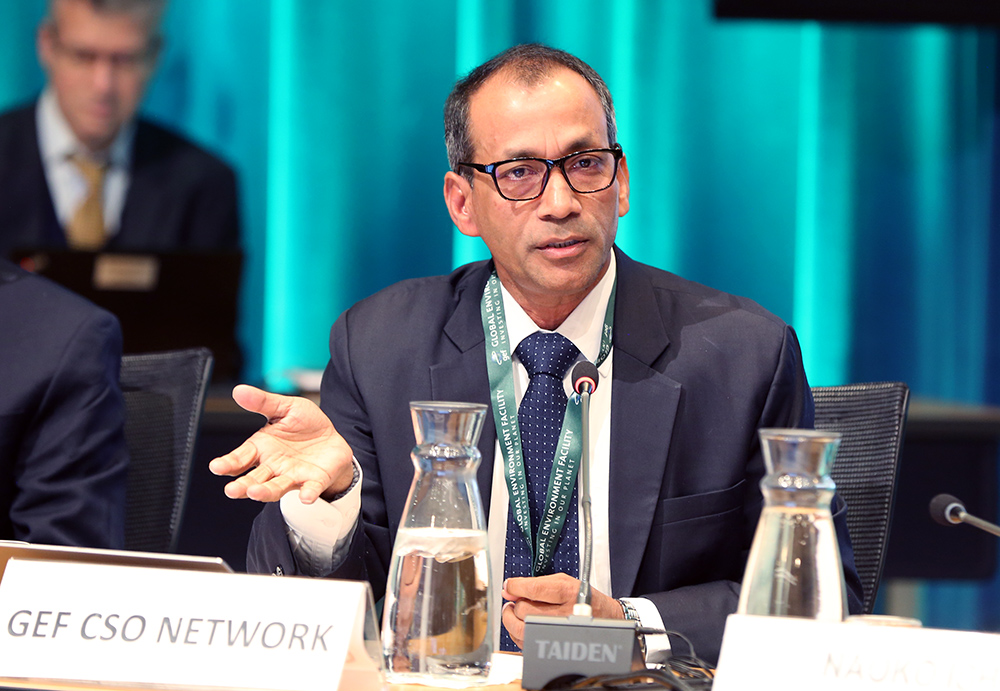
Akhteruzzaman Sano, Chair, GEF-CSO Network
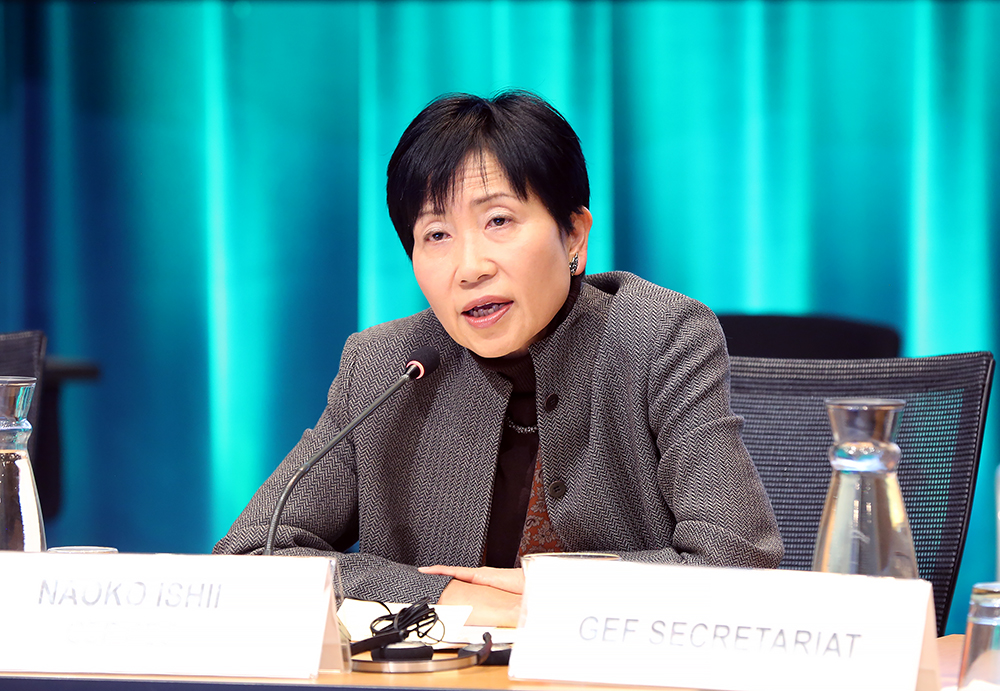
Naoko Ishii, GEF CEO and Chairperson
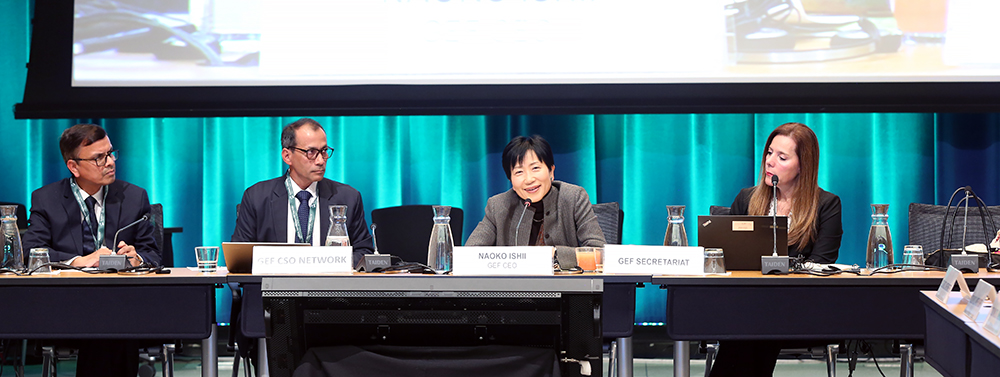
L-R: Lalit Mohan, Convener, GEF-CSO Network Secretariat; Akhteruzzaman Sano, Chair, GEF-CSO Network; Naoko Ishii, GEF CEO and Chairperson; and Pilar Barrera Rey, GEF Secretariat
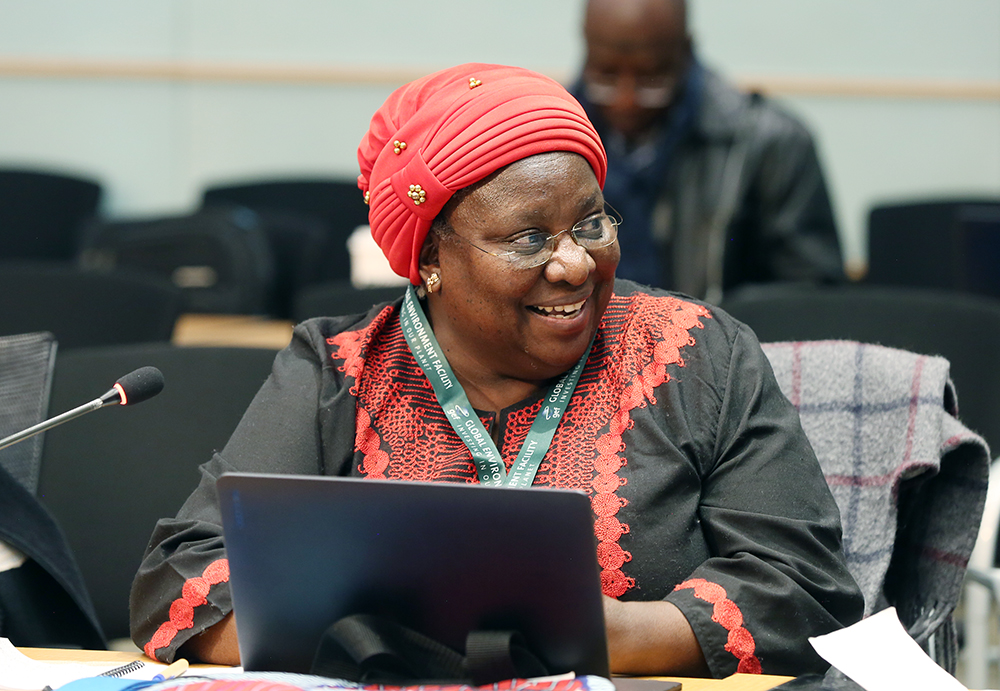
Lucy Mulenkei, Chair, Indigenous Peoples Advisory Group
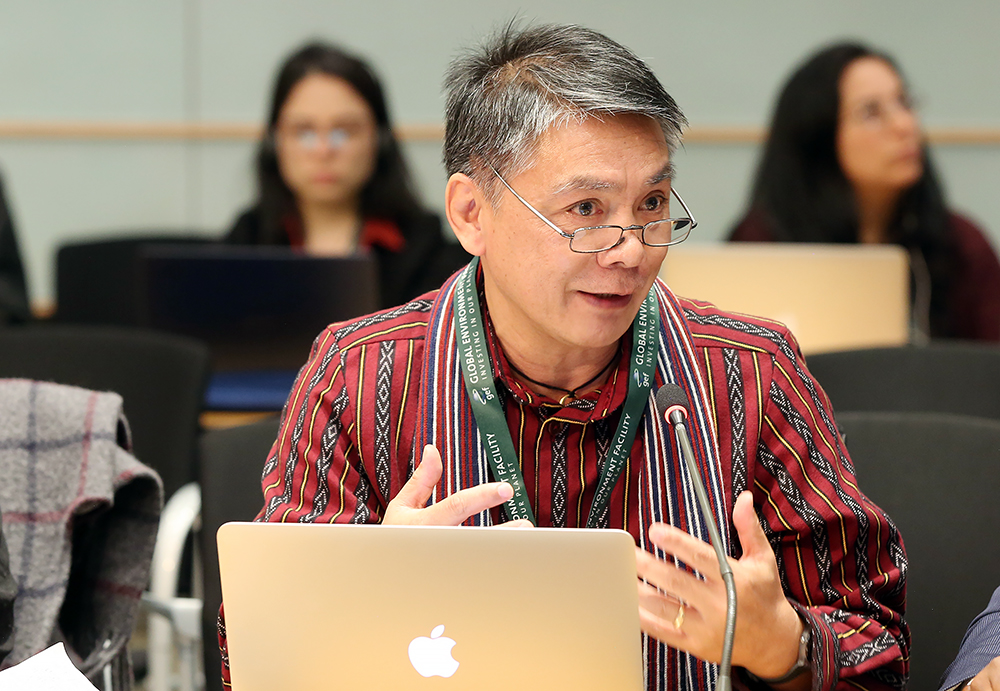
Giovanni Reyes, Philippine Indigenous and Community Conserved Areas (ICCA) Consortium
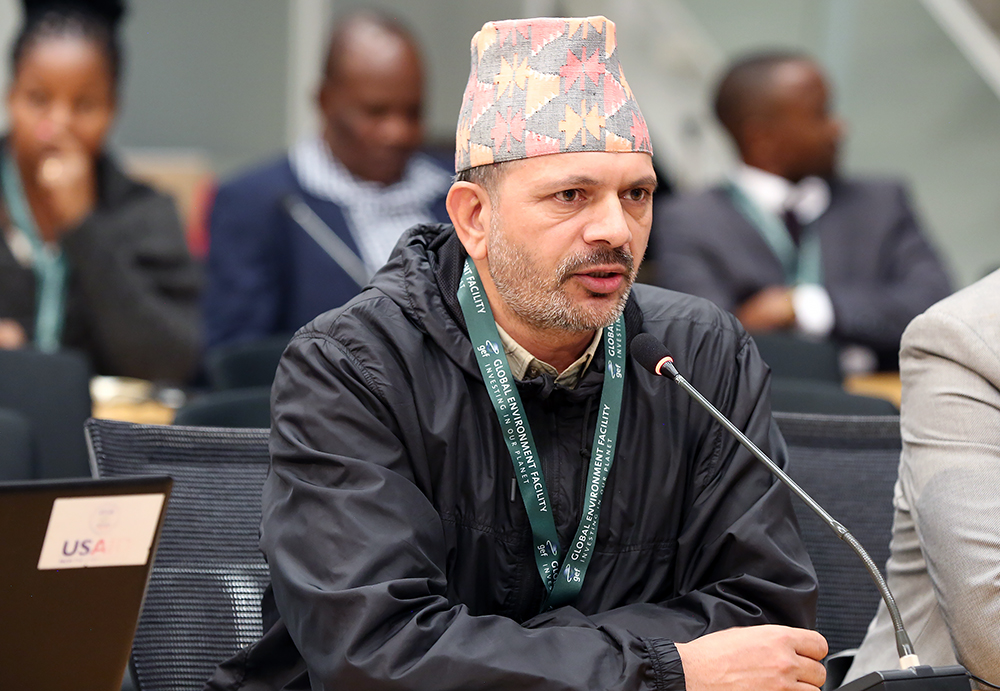
Dil Raj Khanal, Federation of Community Forestry Users, Nepal
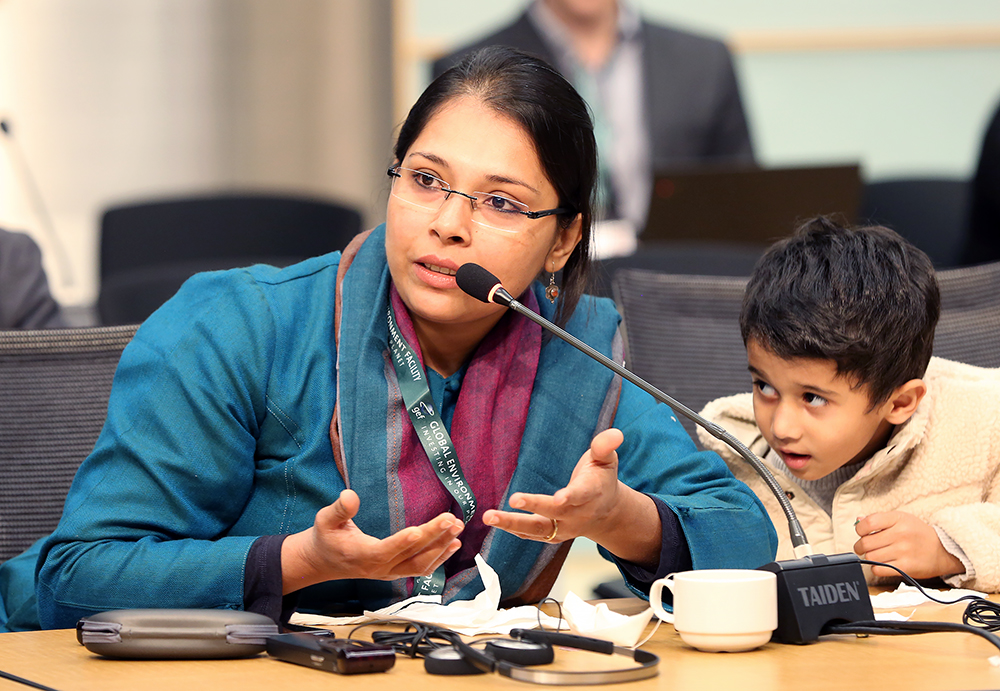
Divya Khandal, Dhonk, India
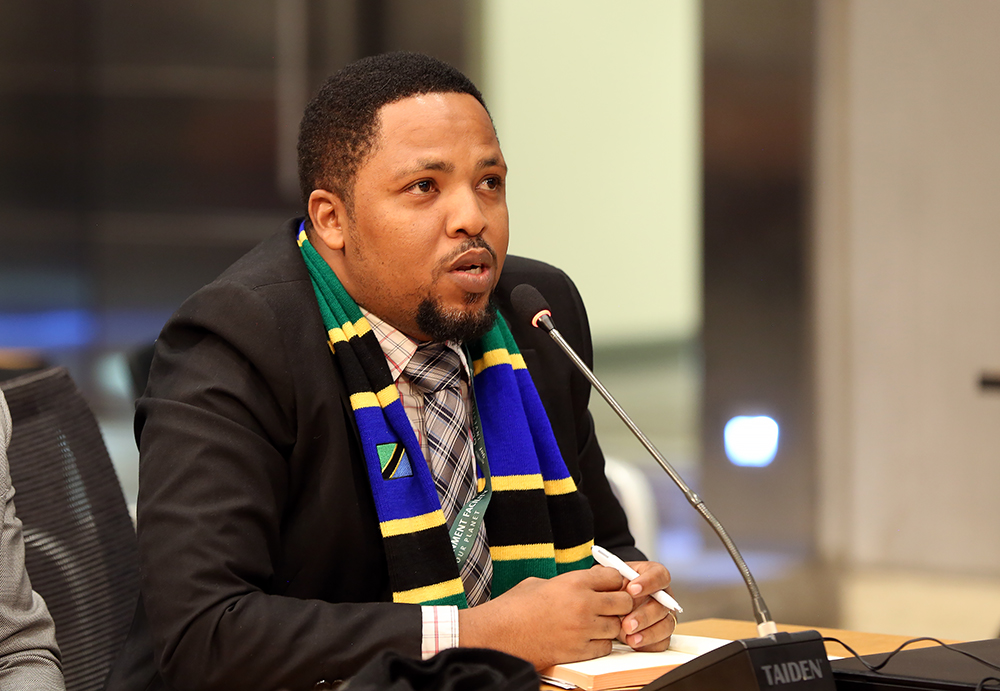
George James Wambura, Community Wildlife Management Areas Consortium, Tanzania
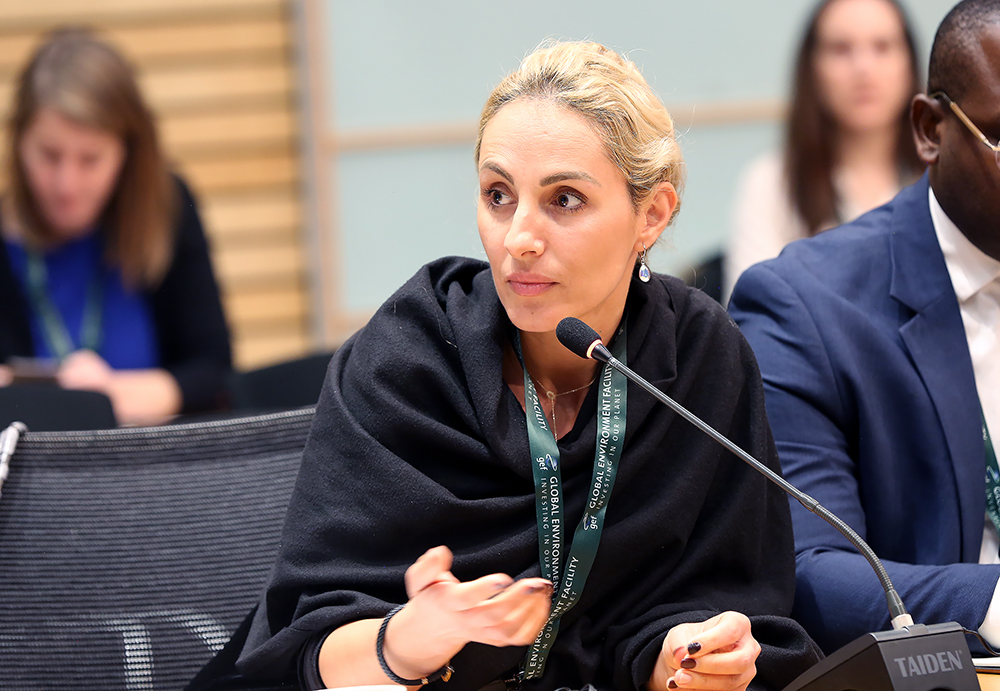
Ornela Cuci, Alternate Council Member, Albania
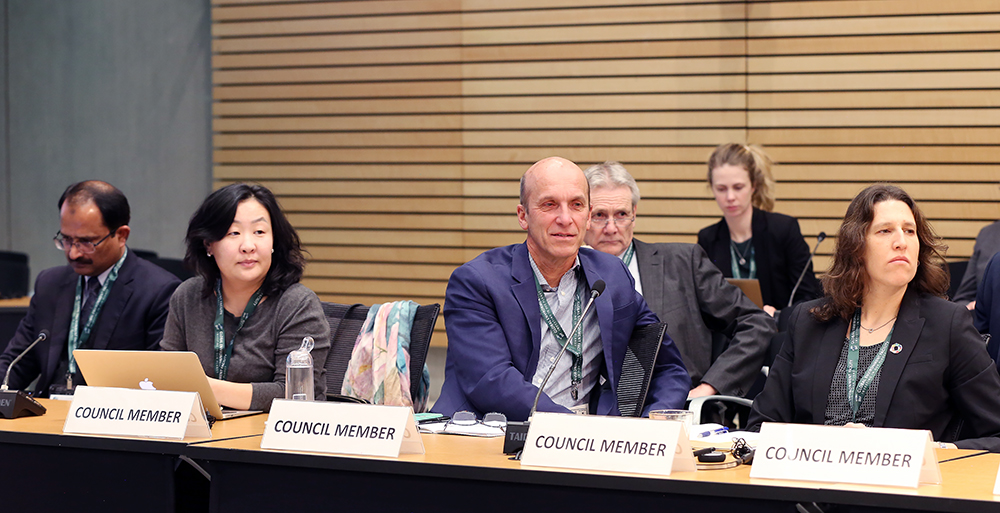
L-R: Ariuntuya Dorjsuren, Council Member, Mongolia; Stefan Schwager, Council Member, Switzerland; and Lauren Céline Naville Gisnås, Council Member, Norway
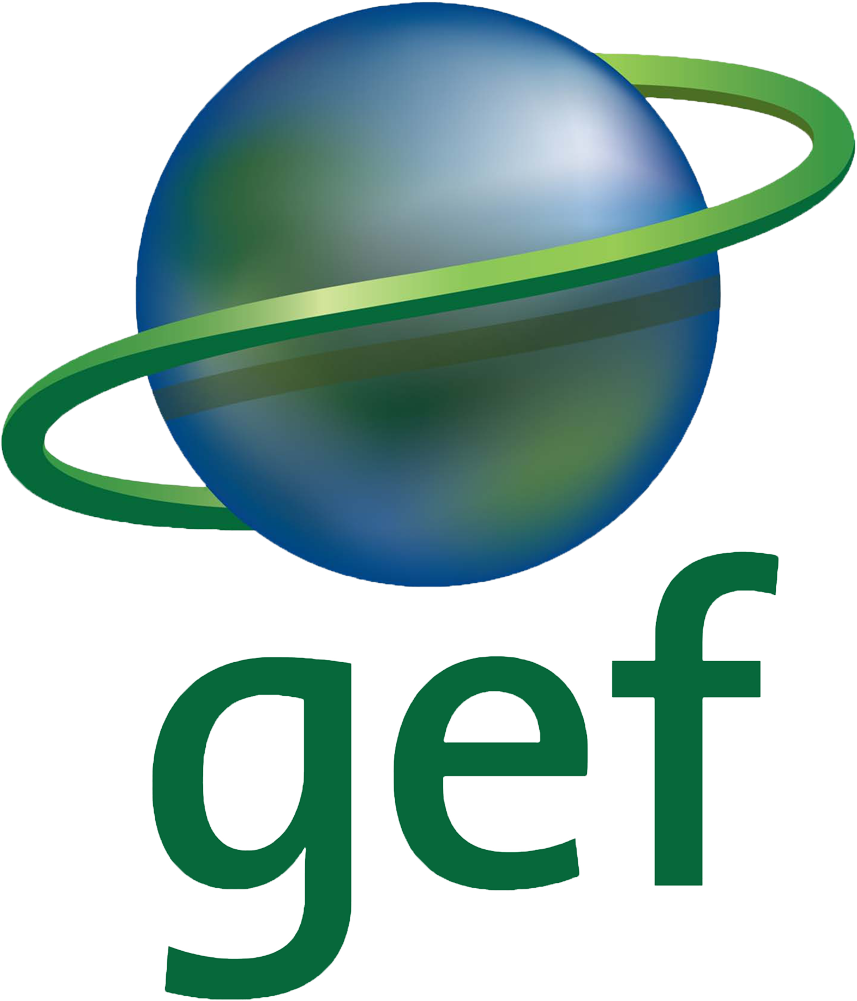 Specific funding for IISD Reporting Services coverage of the GEF Council Consultation Meeting with CSOs, 57th GEF Council Meeting, and 27th Meeting of the LDCF/SCCF Council has been provided by the GEF Secretariat
Specific funding for IISD Reporting Services coverage of the GEF Council Consultation Meeting with CSOs, 57th GEF Council Meeting, and 27th Meeting of the LDCF/SCCF Council has been provided by the GEF Secretariat